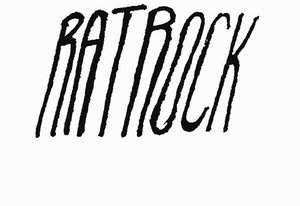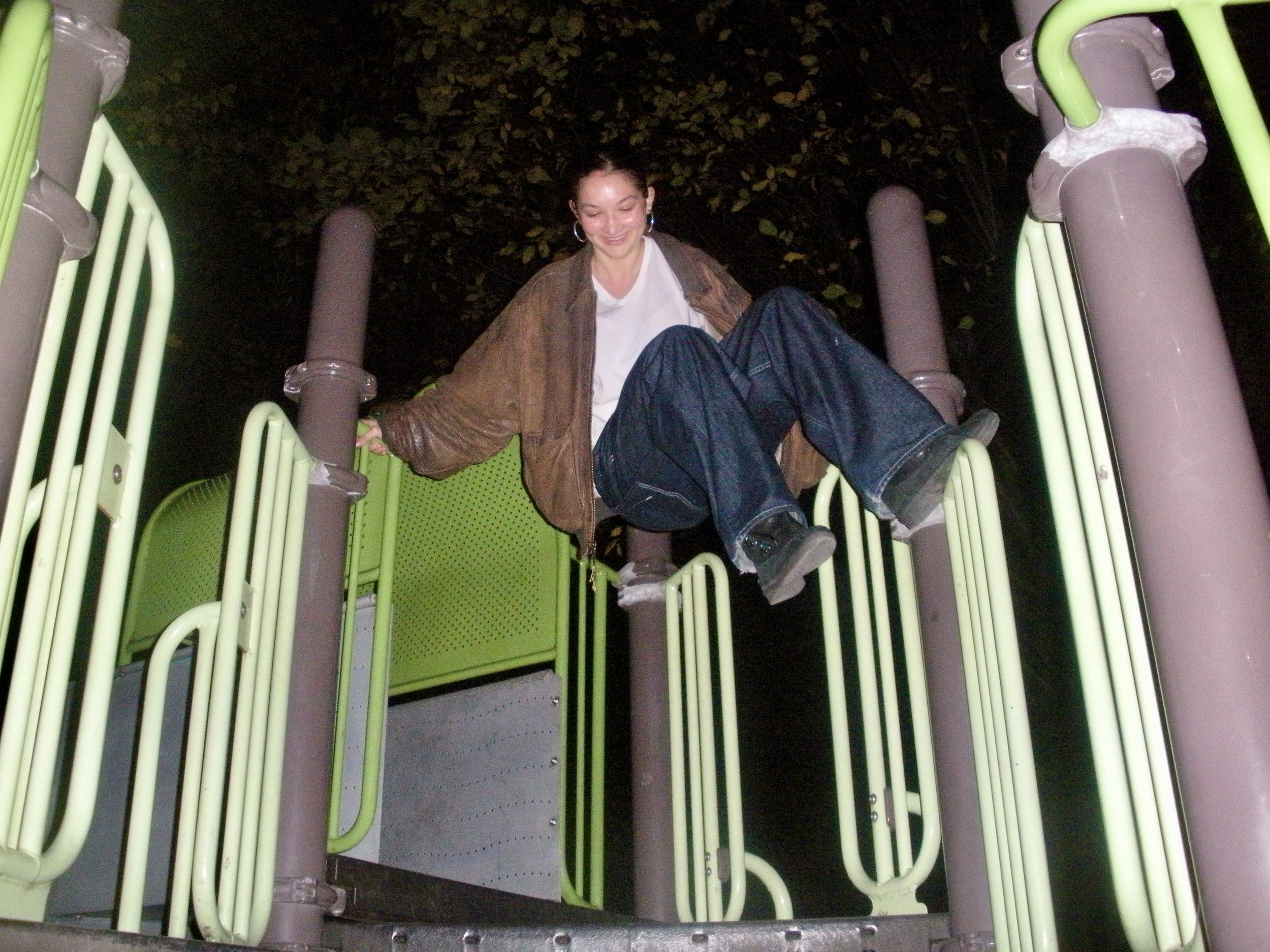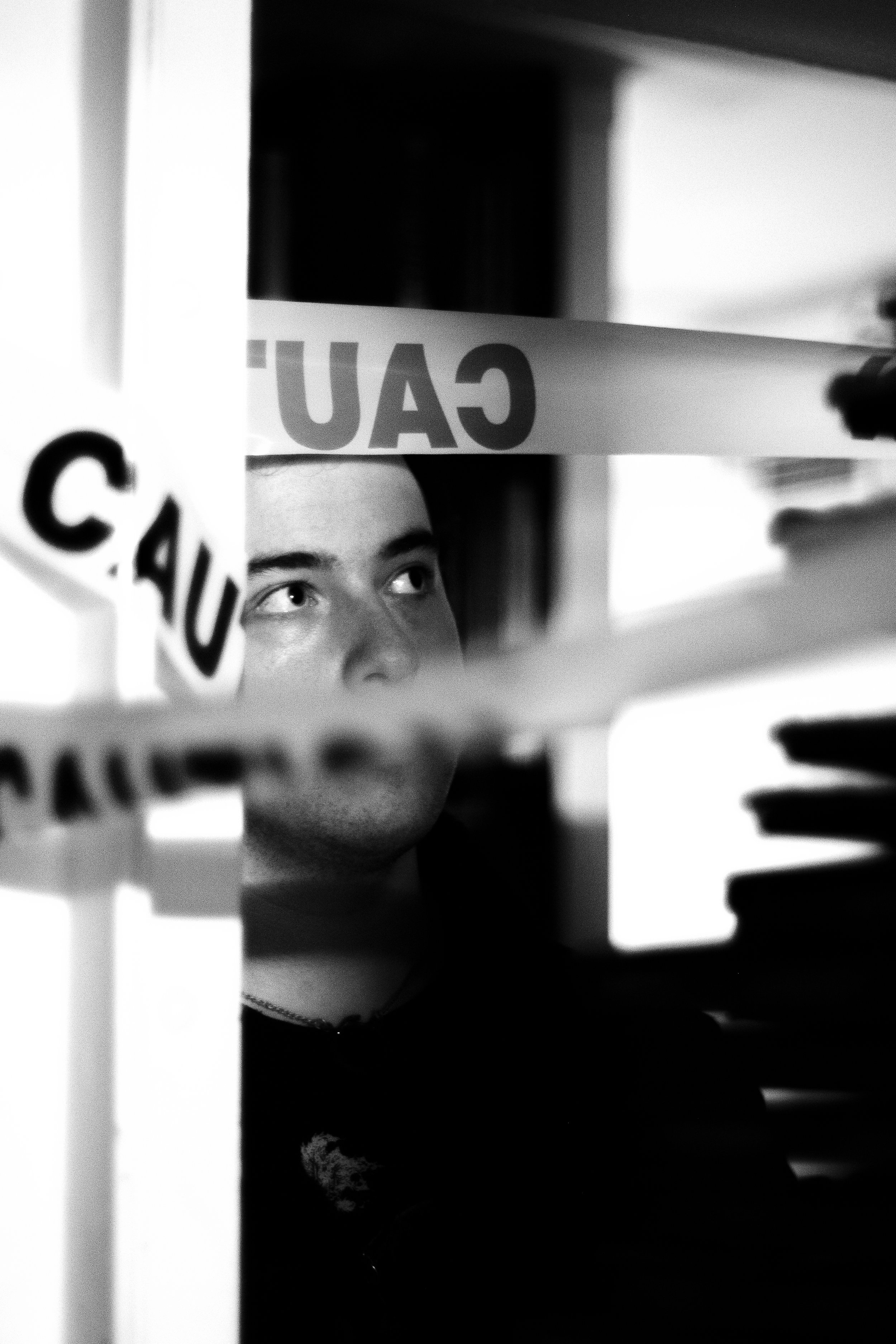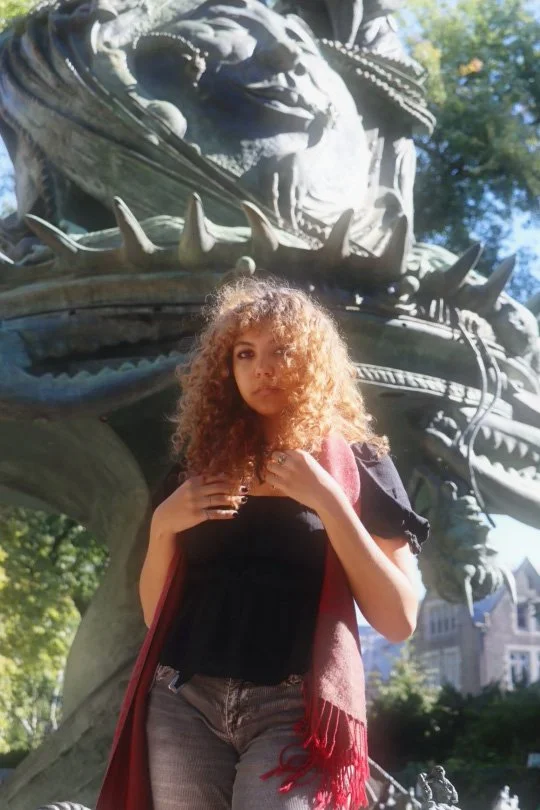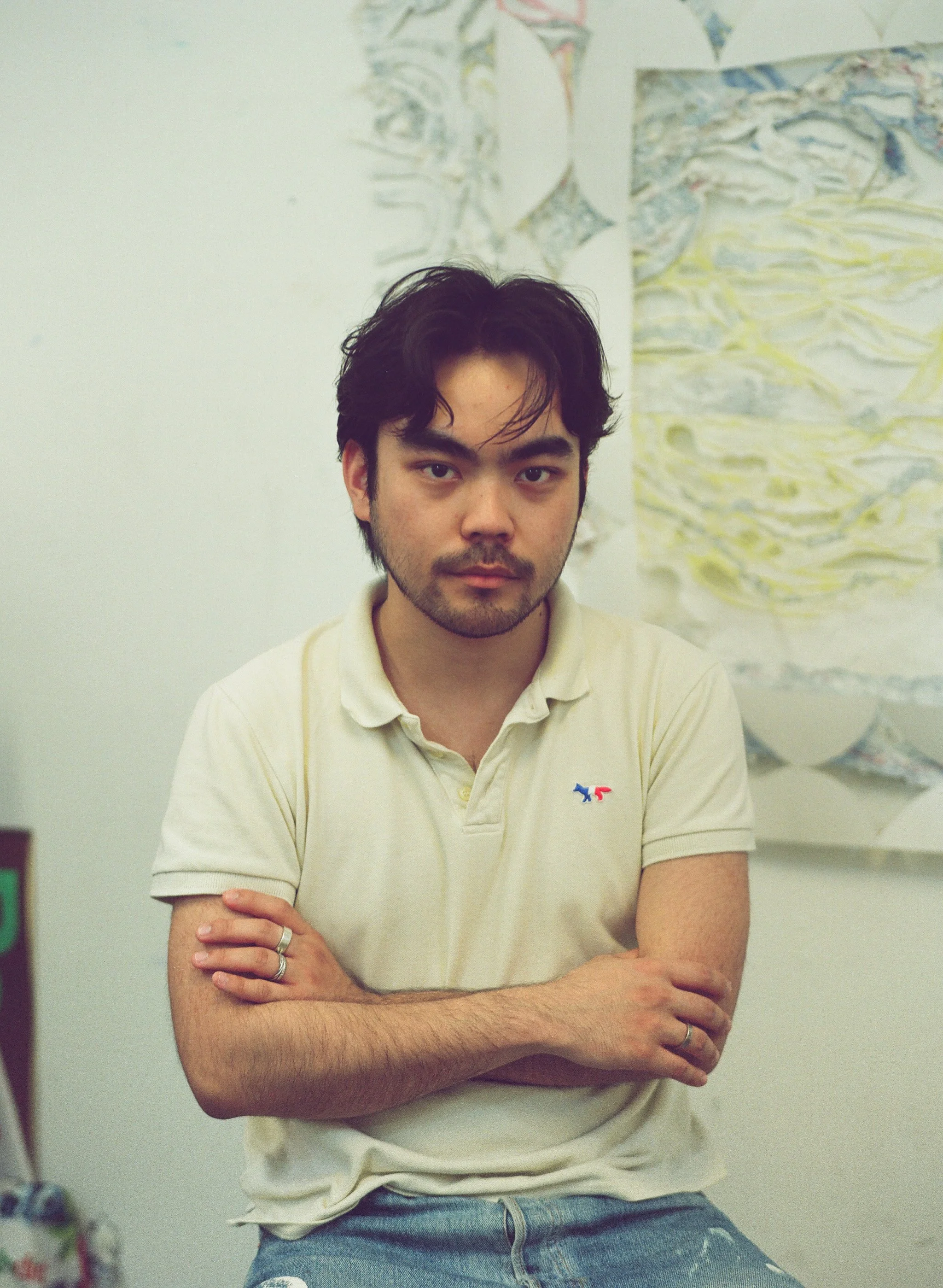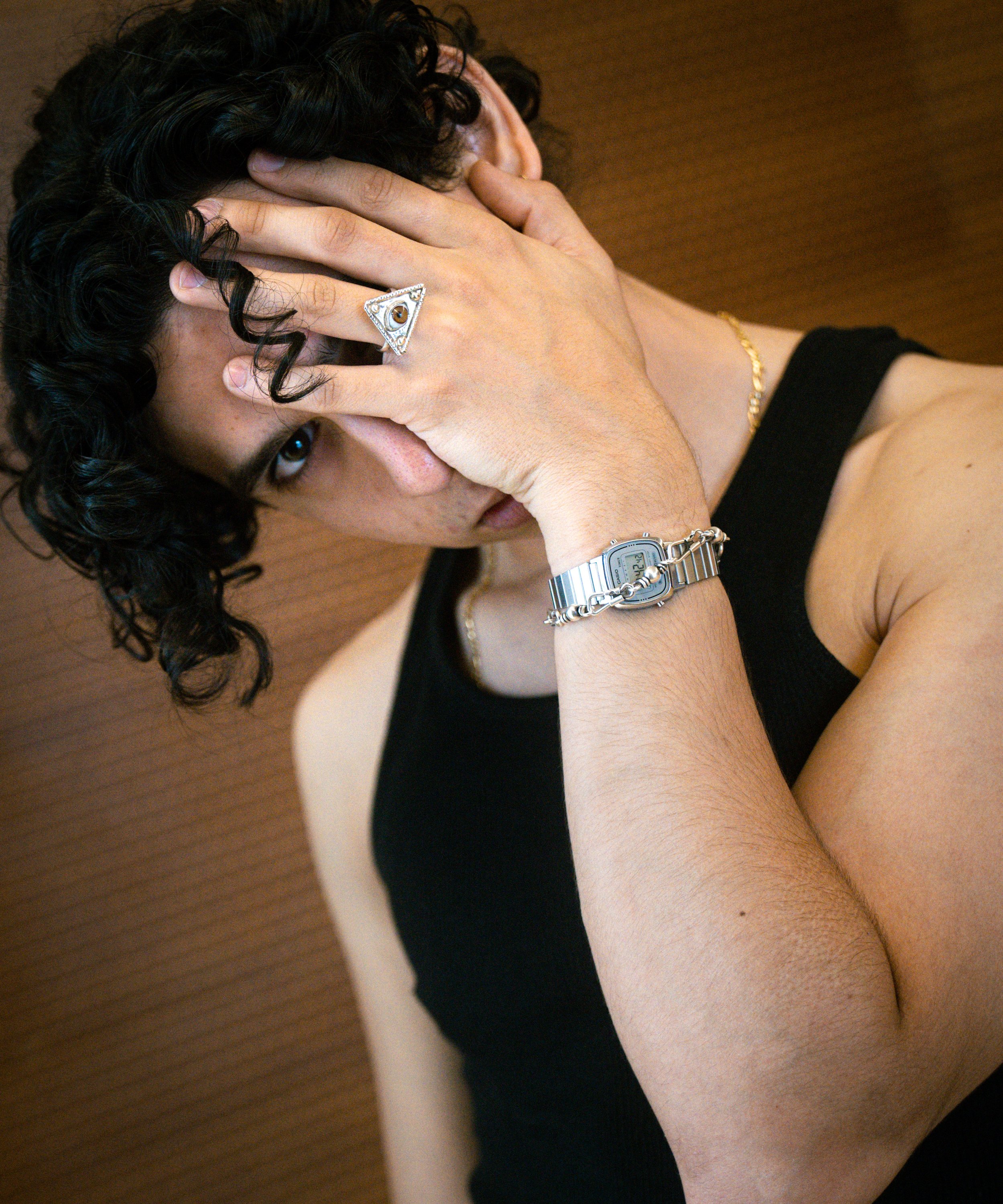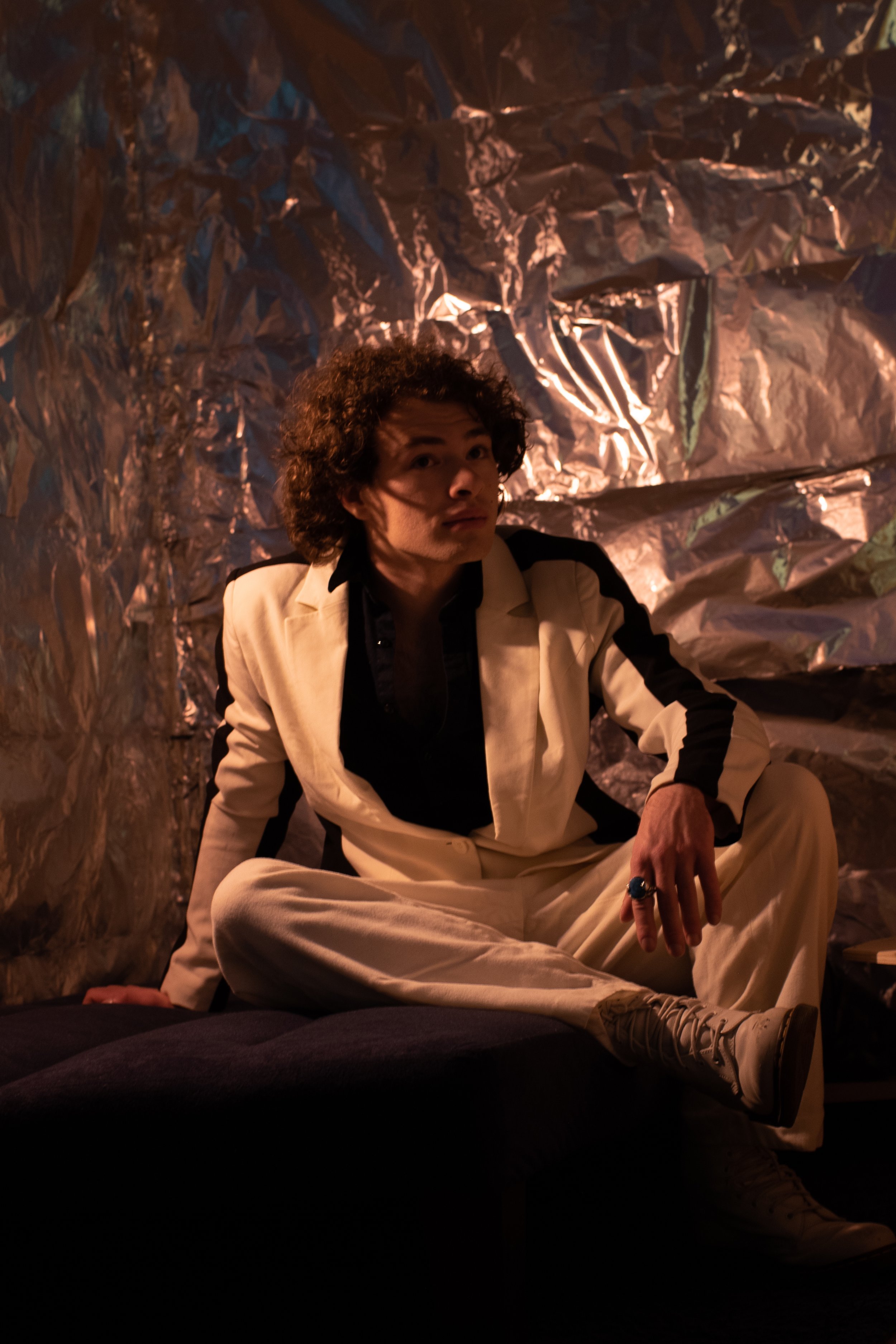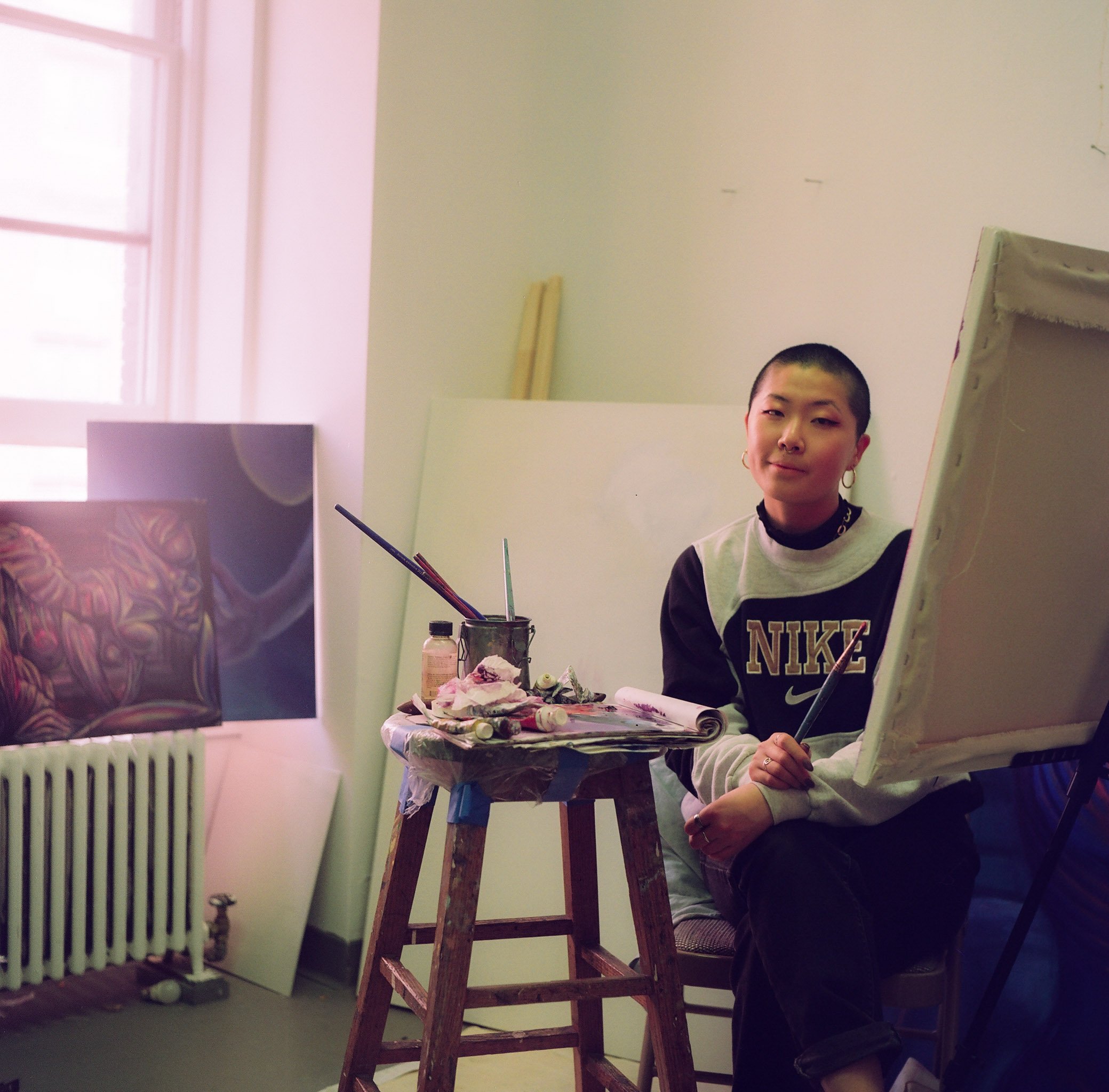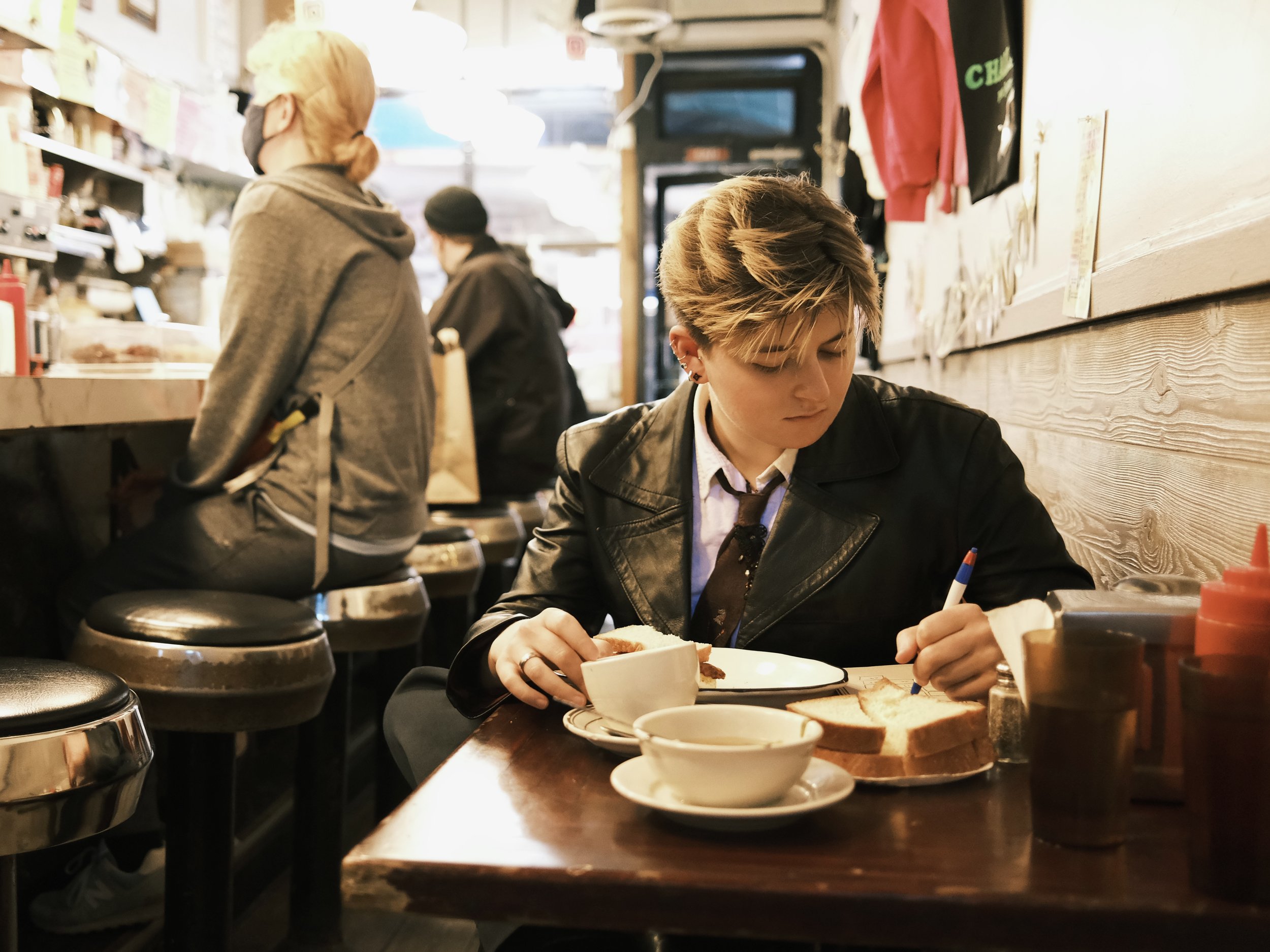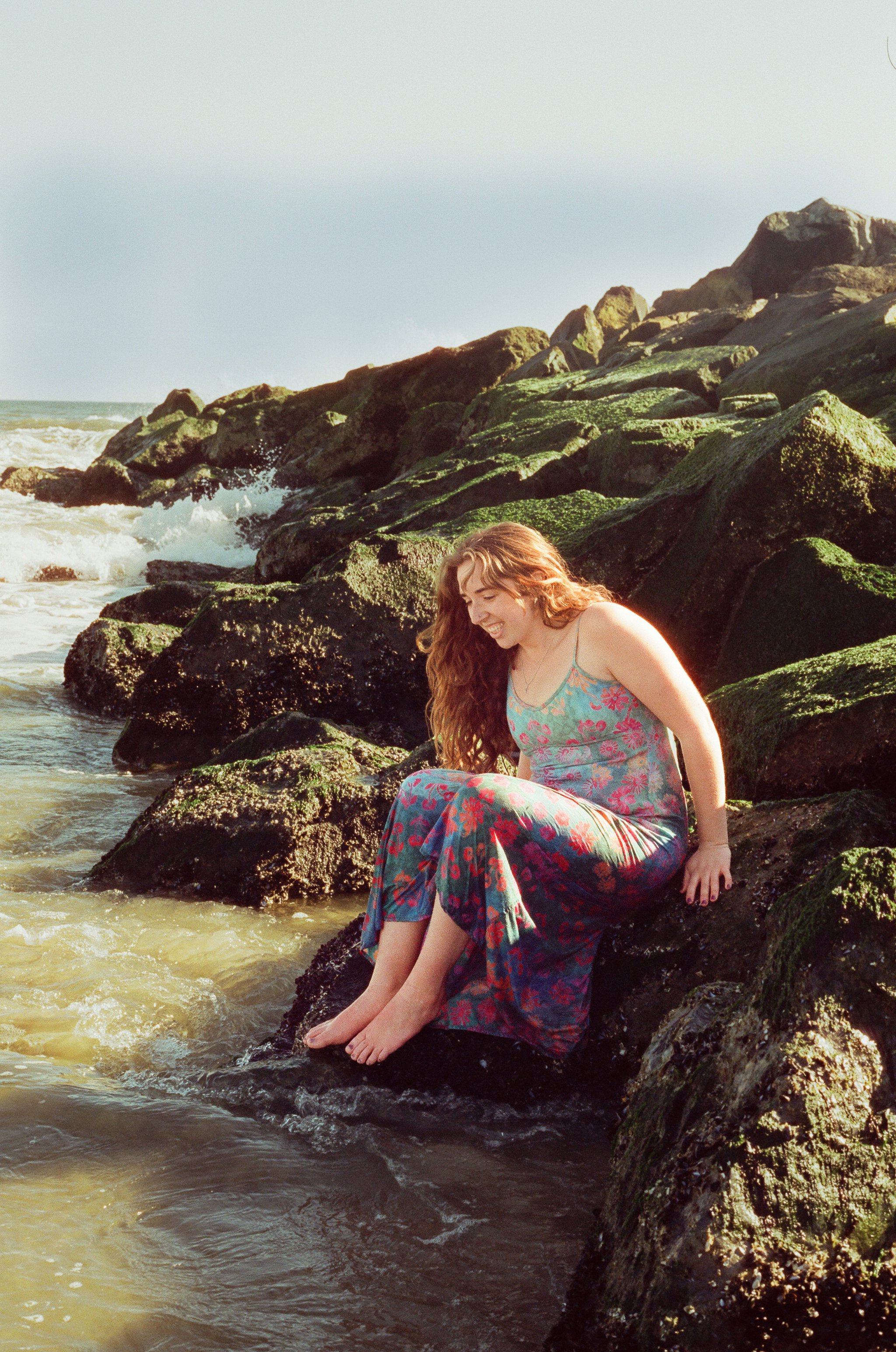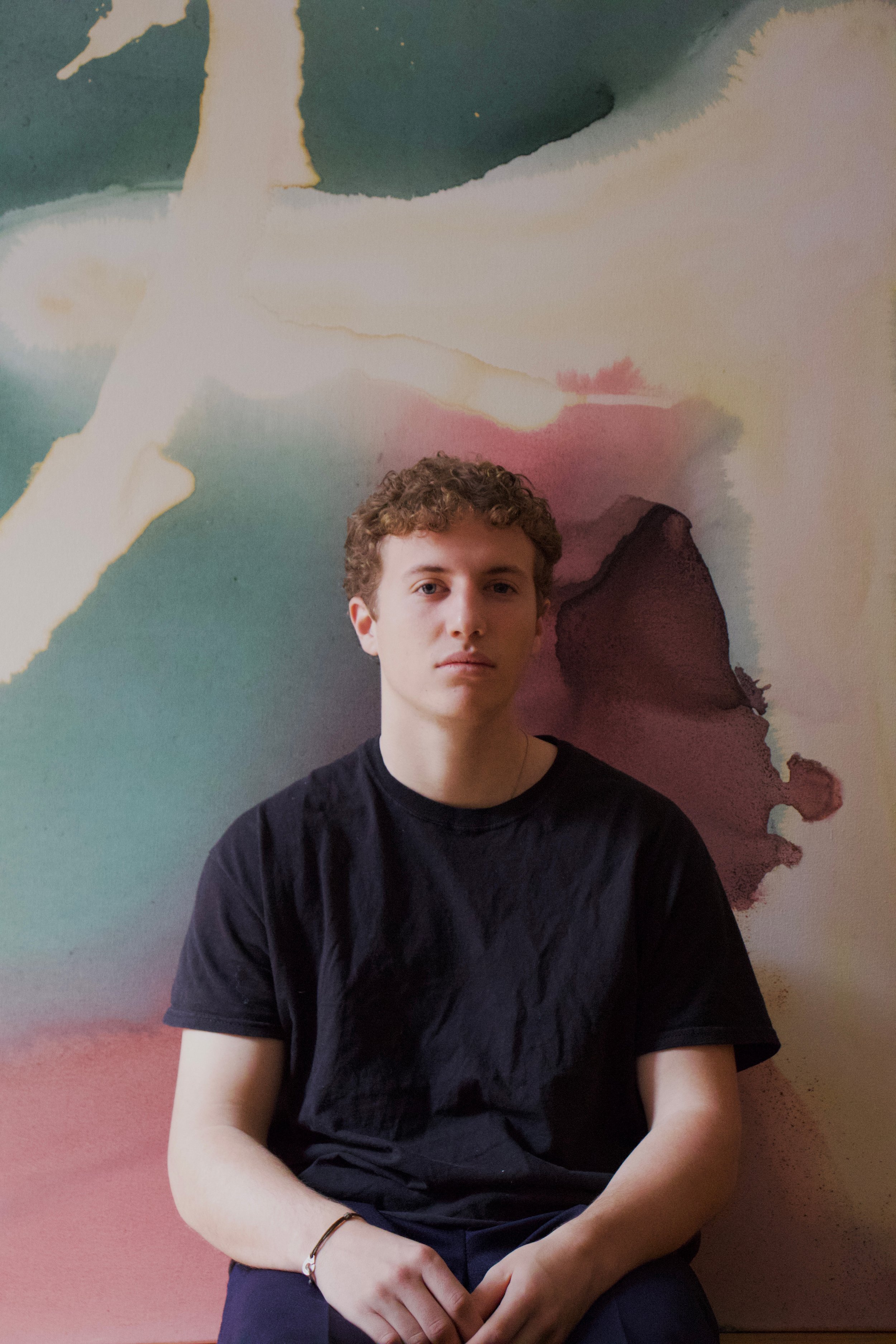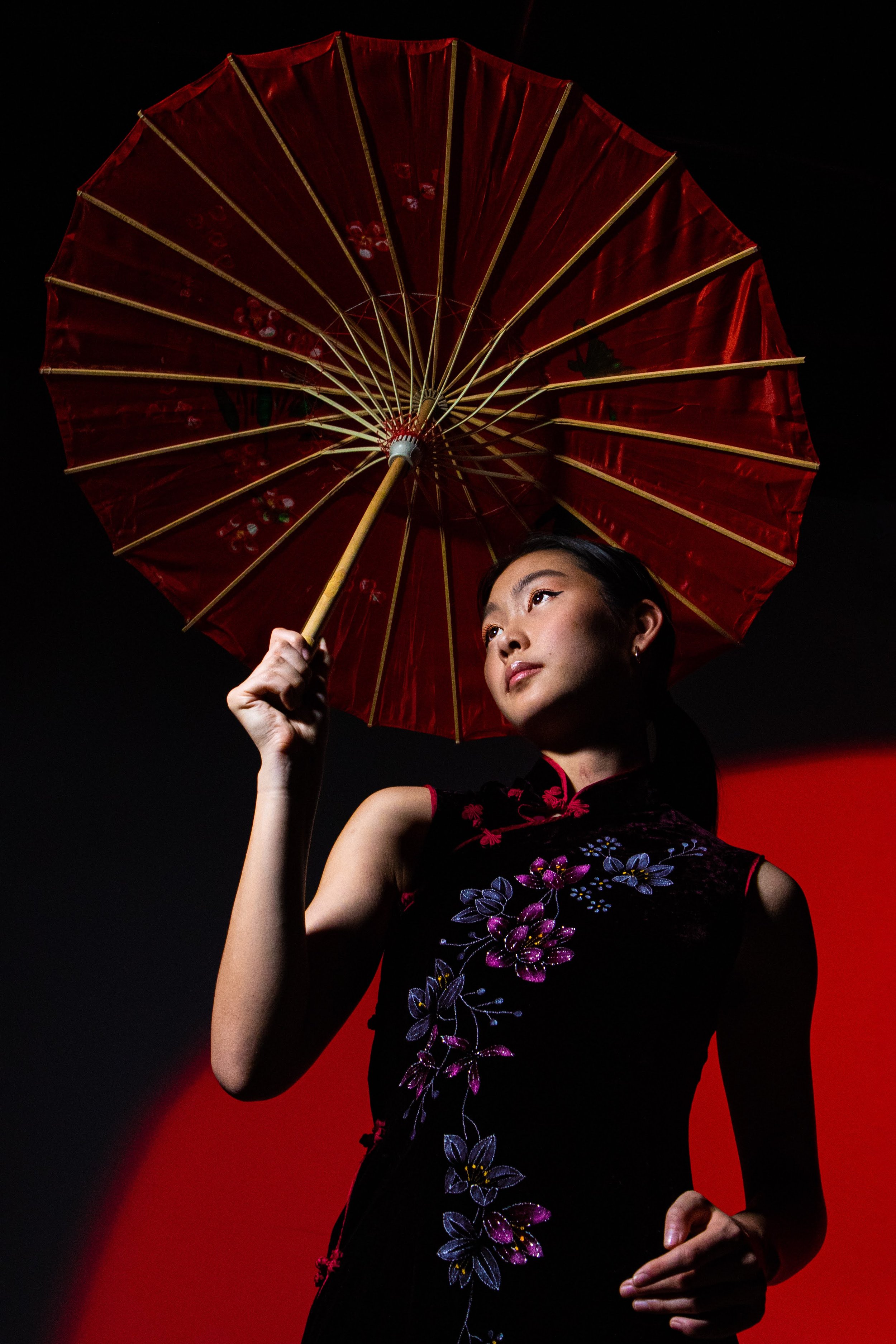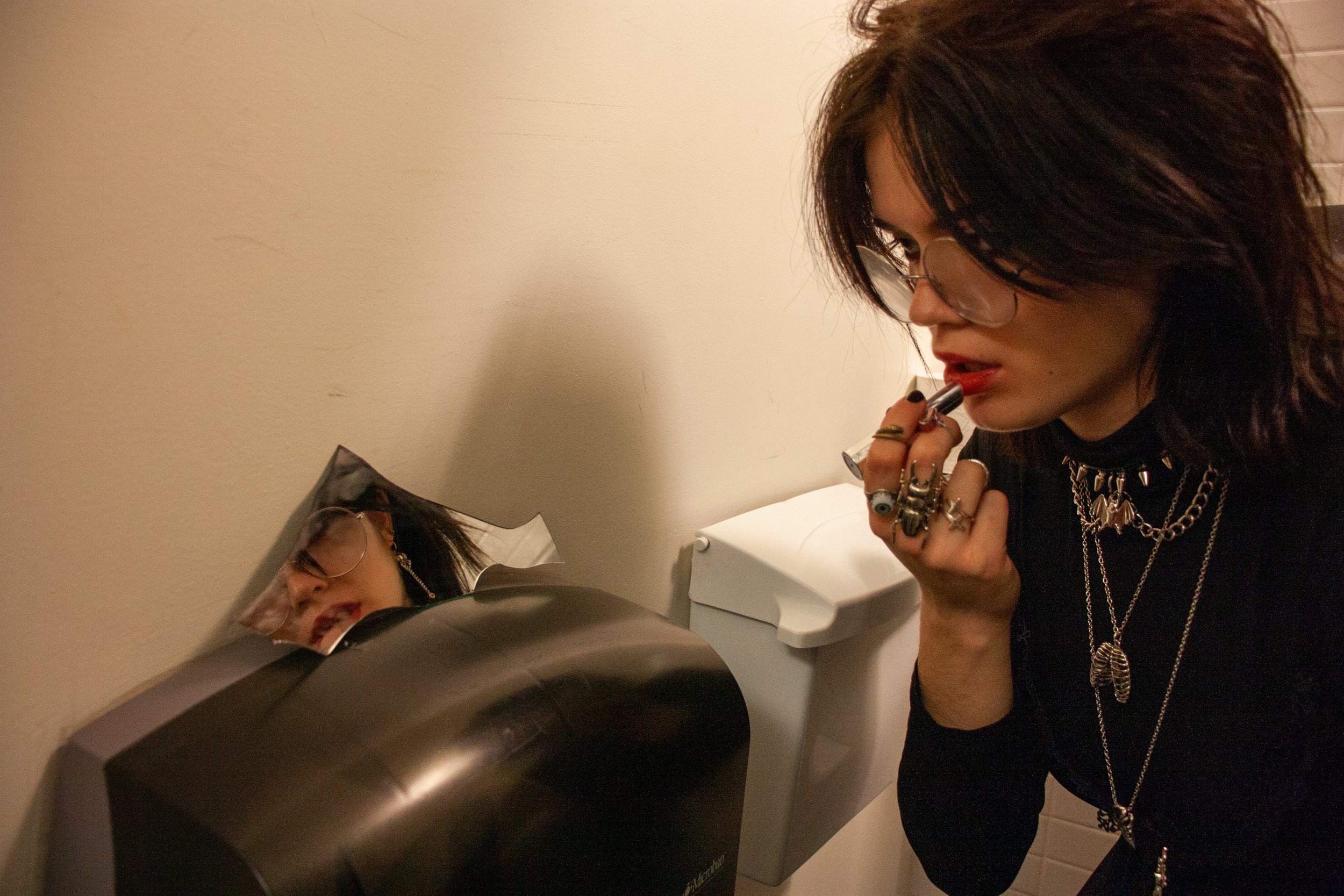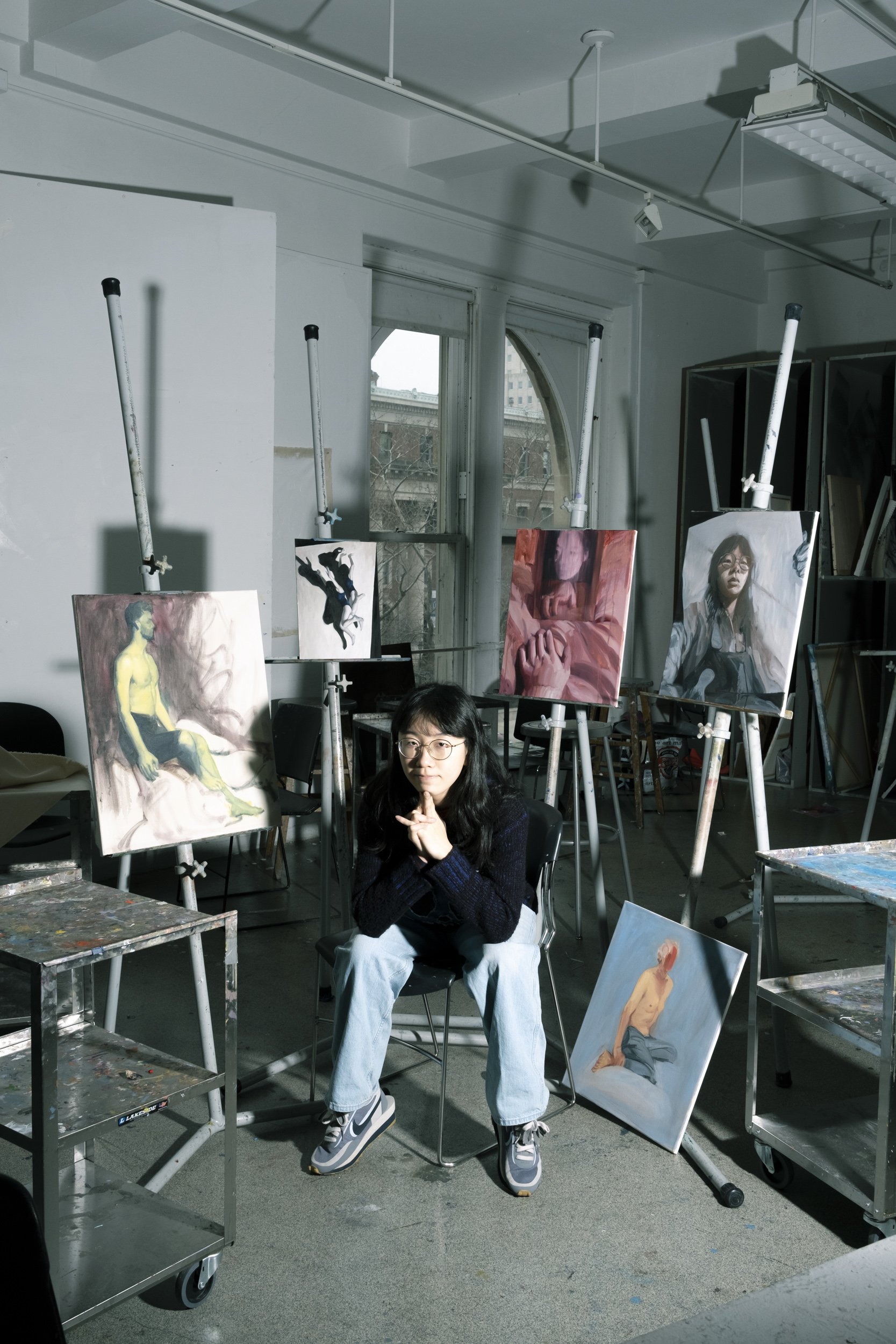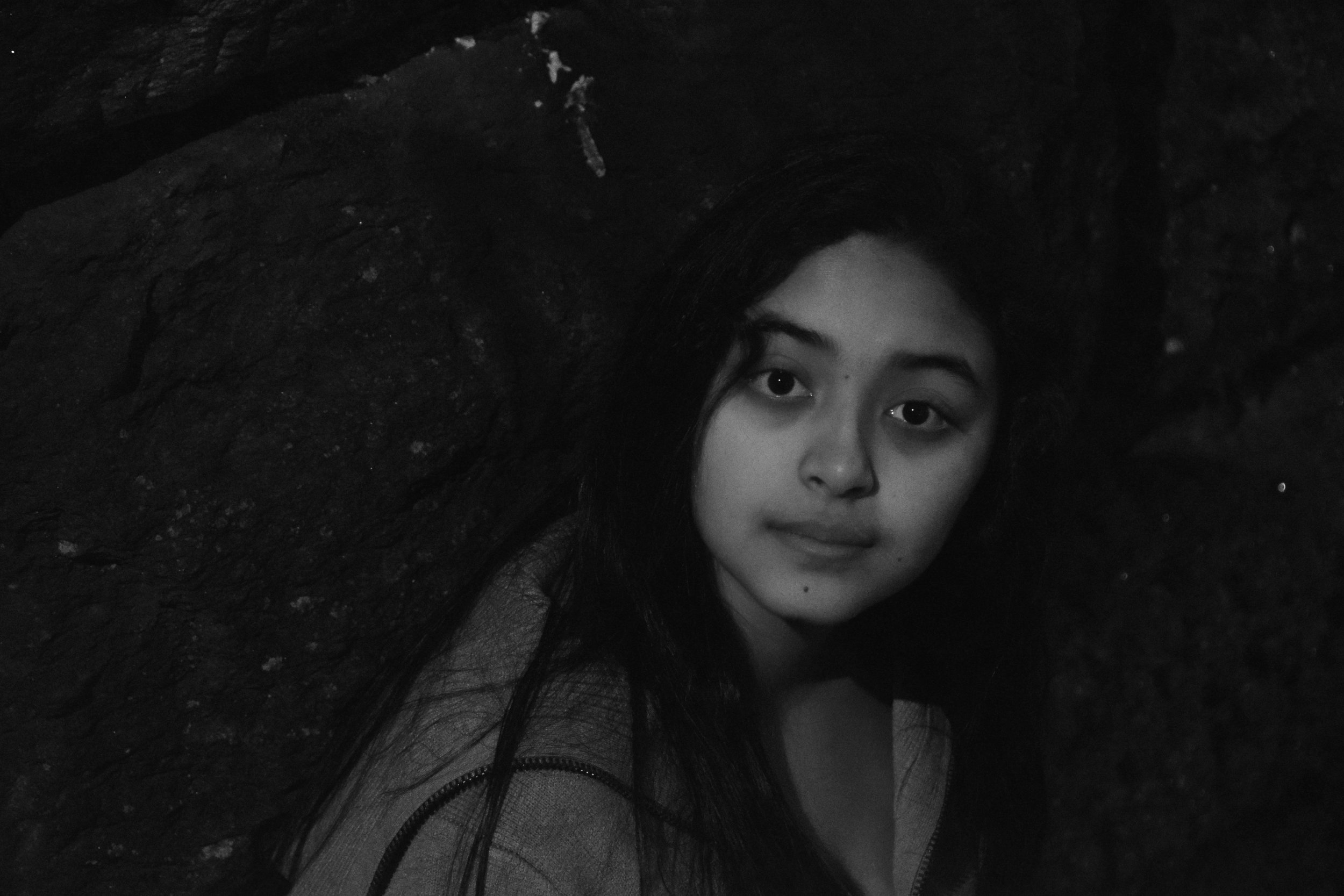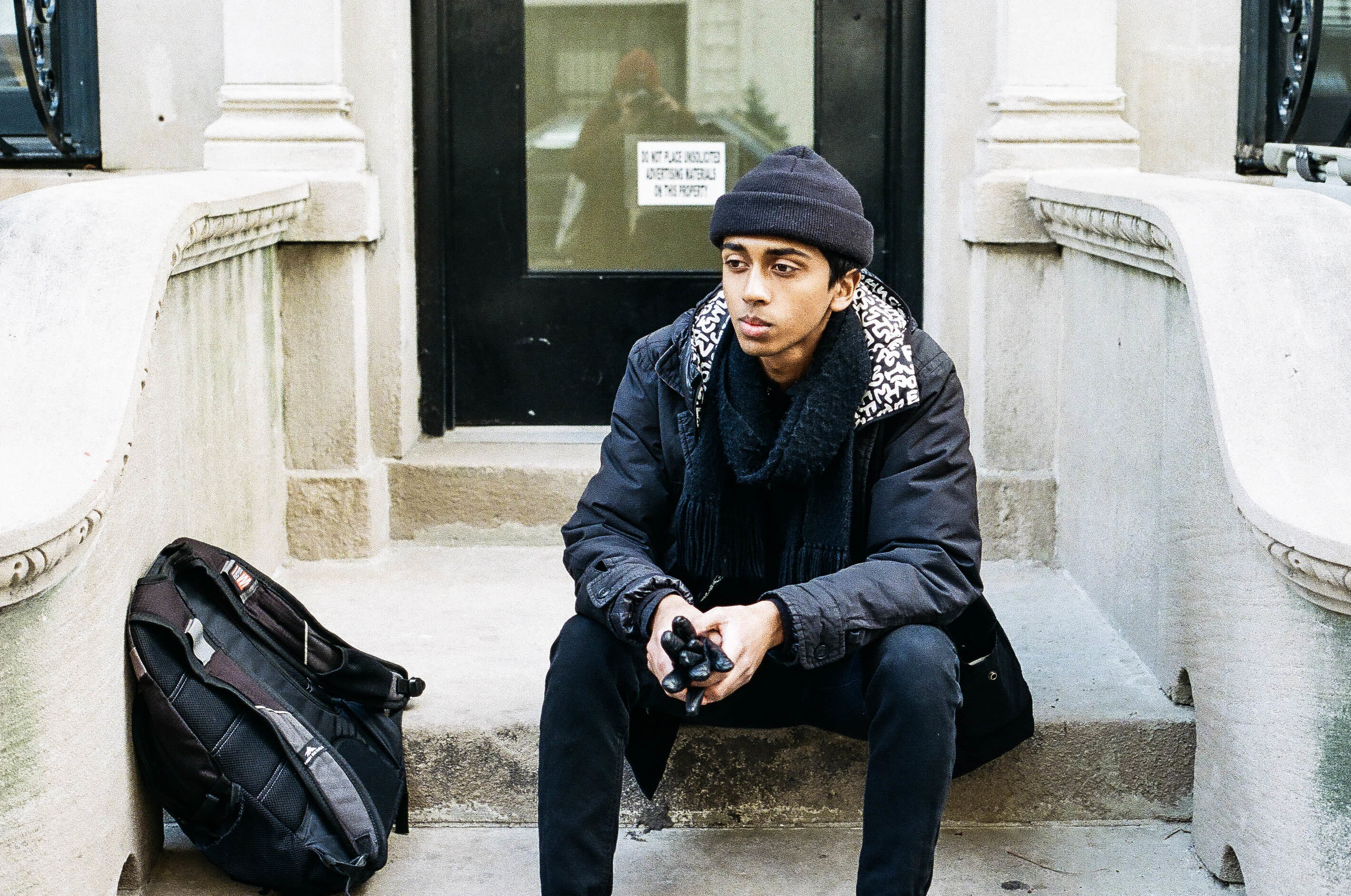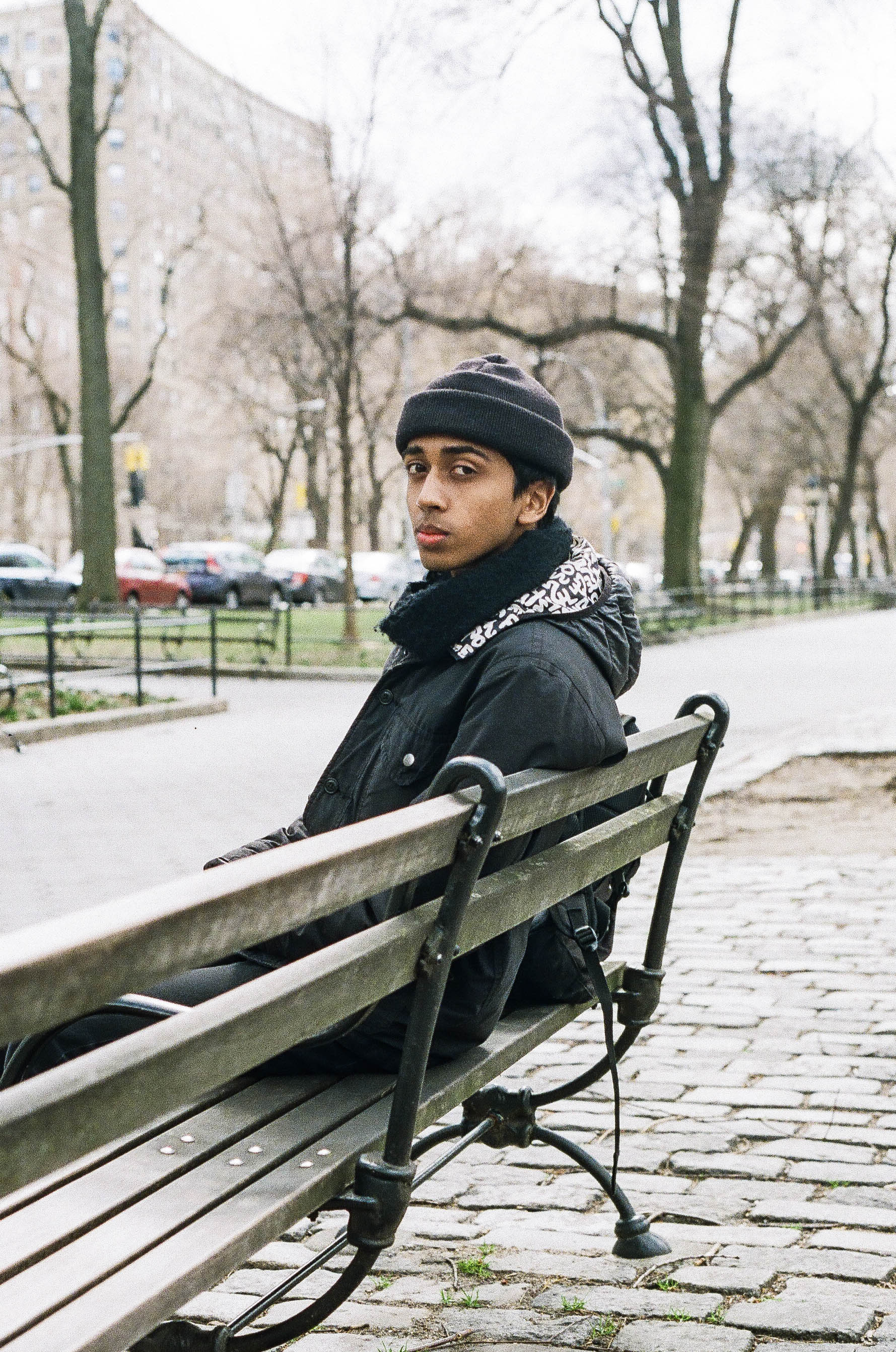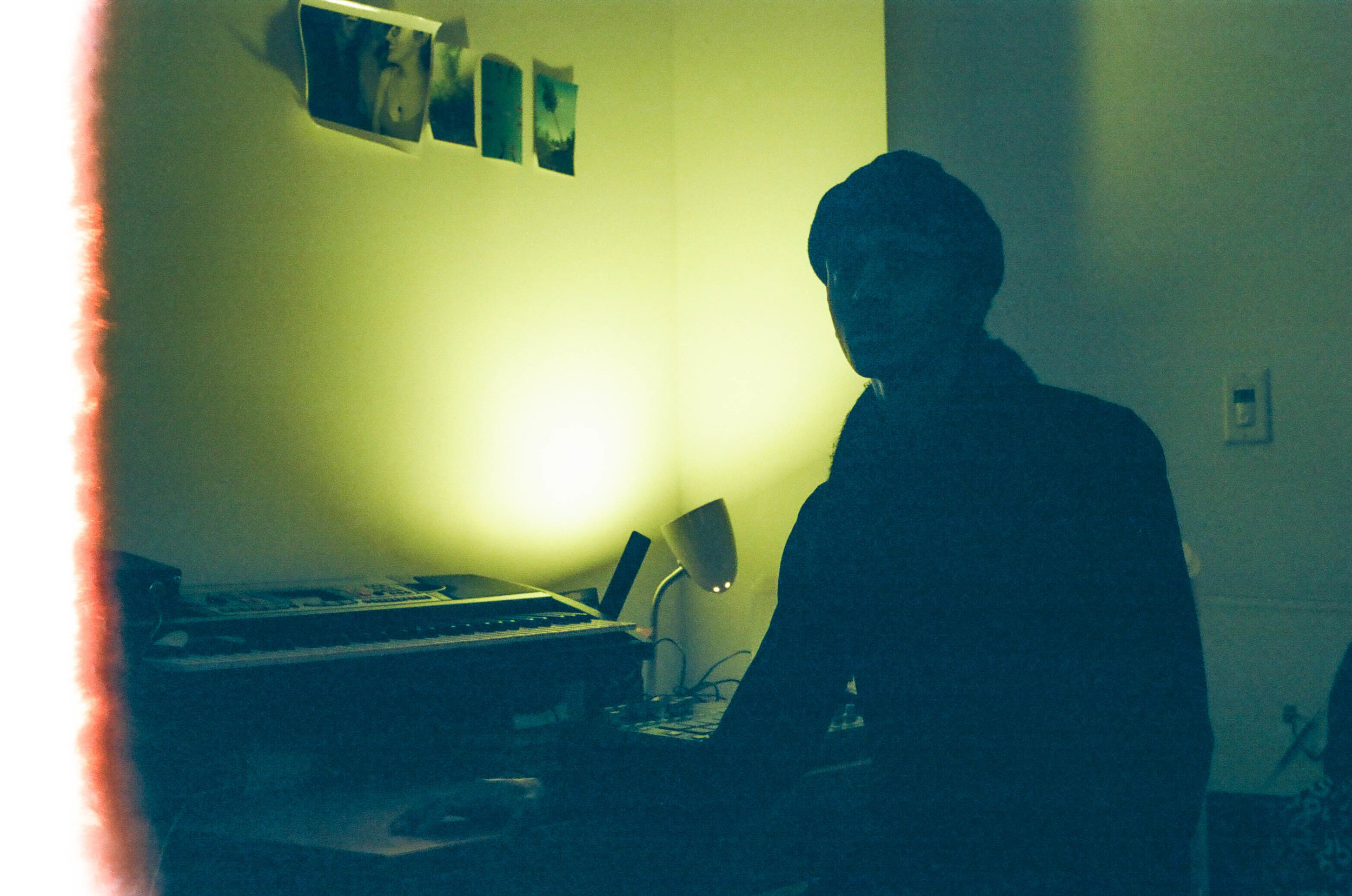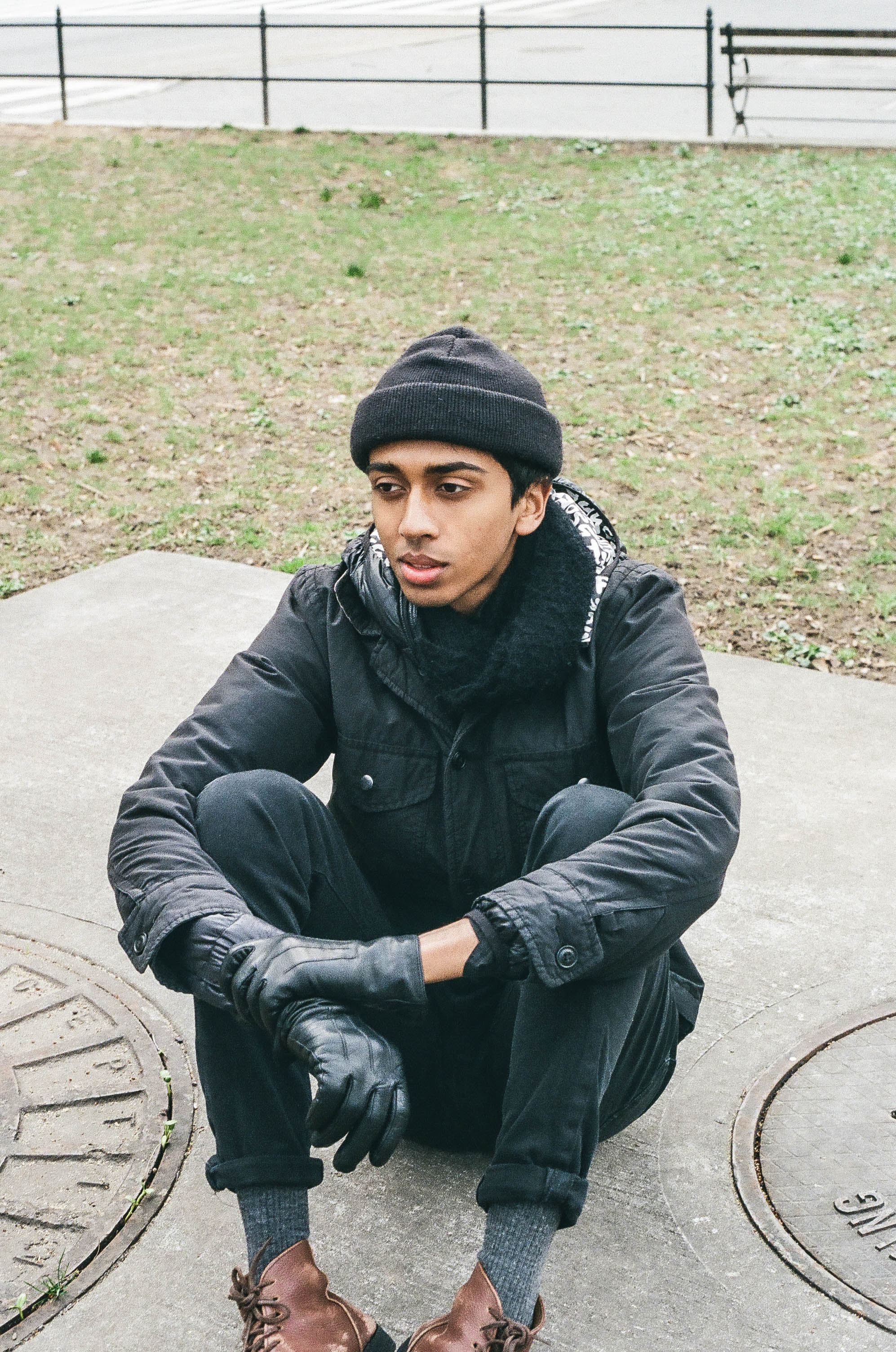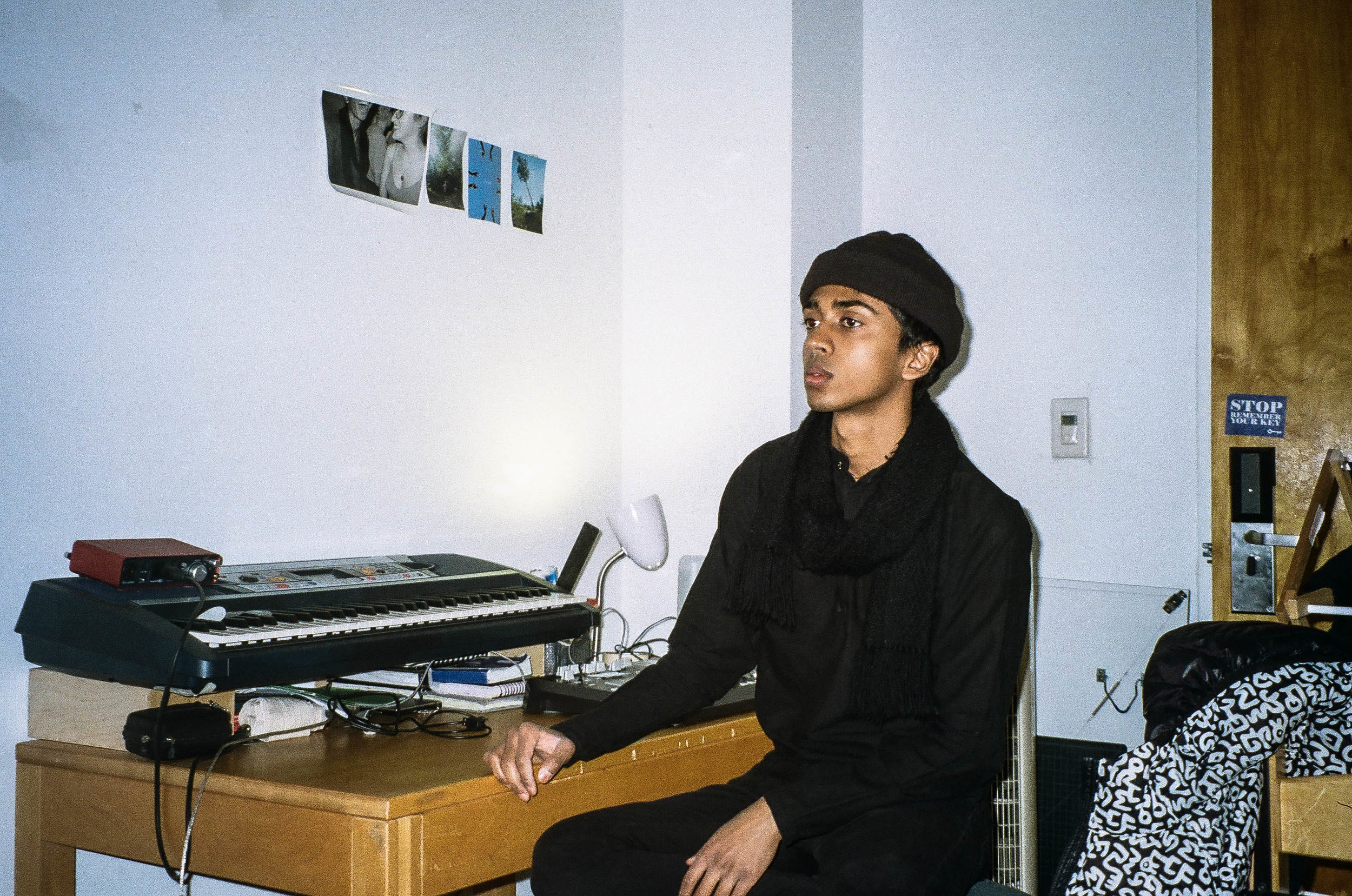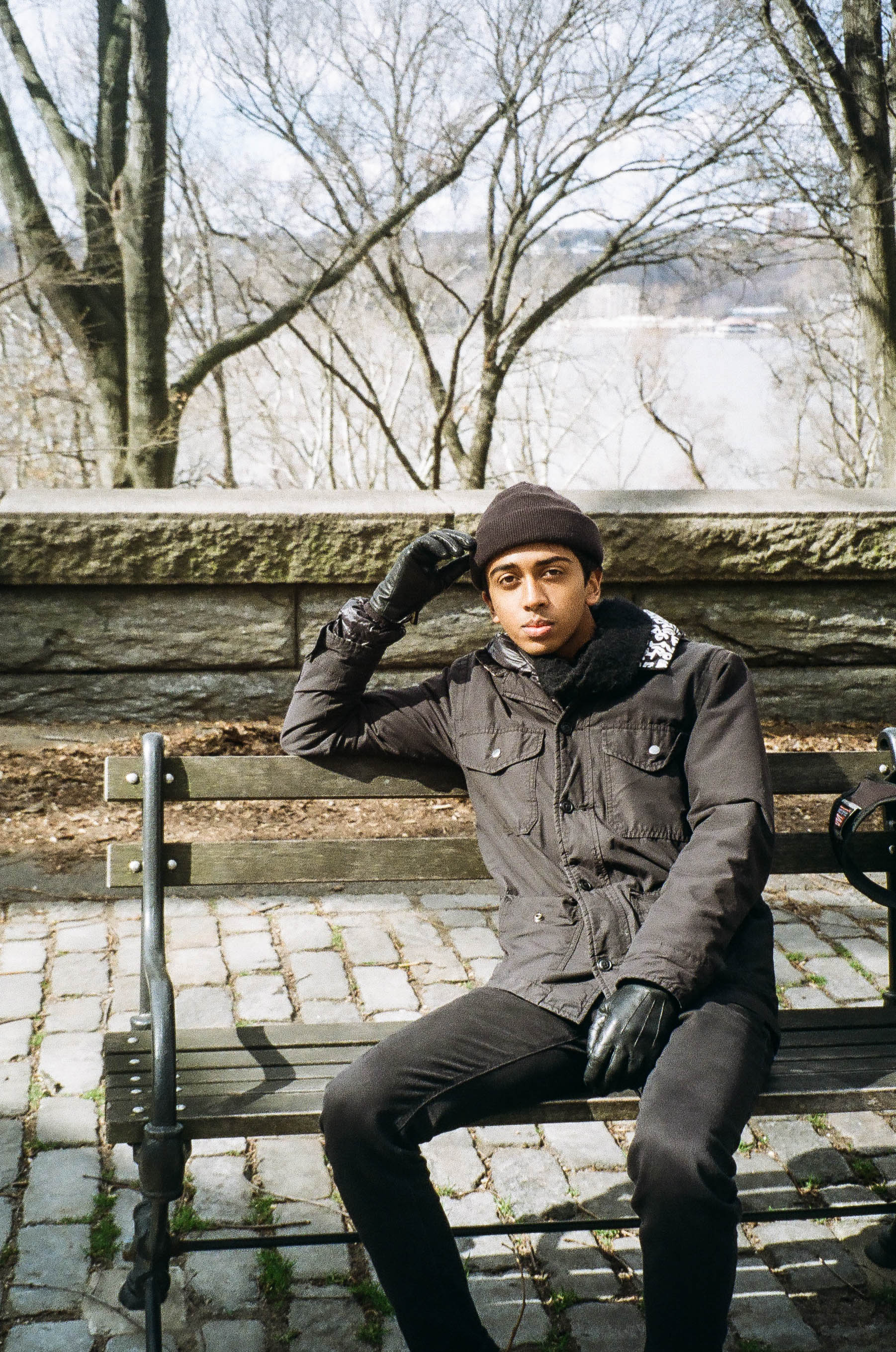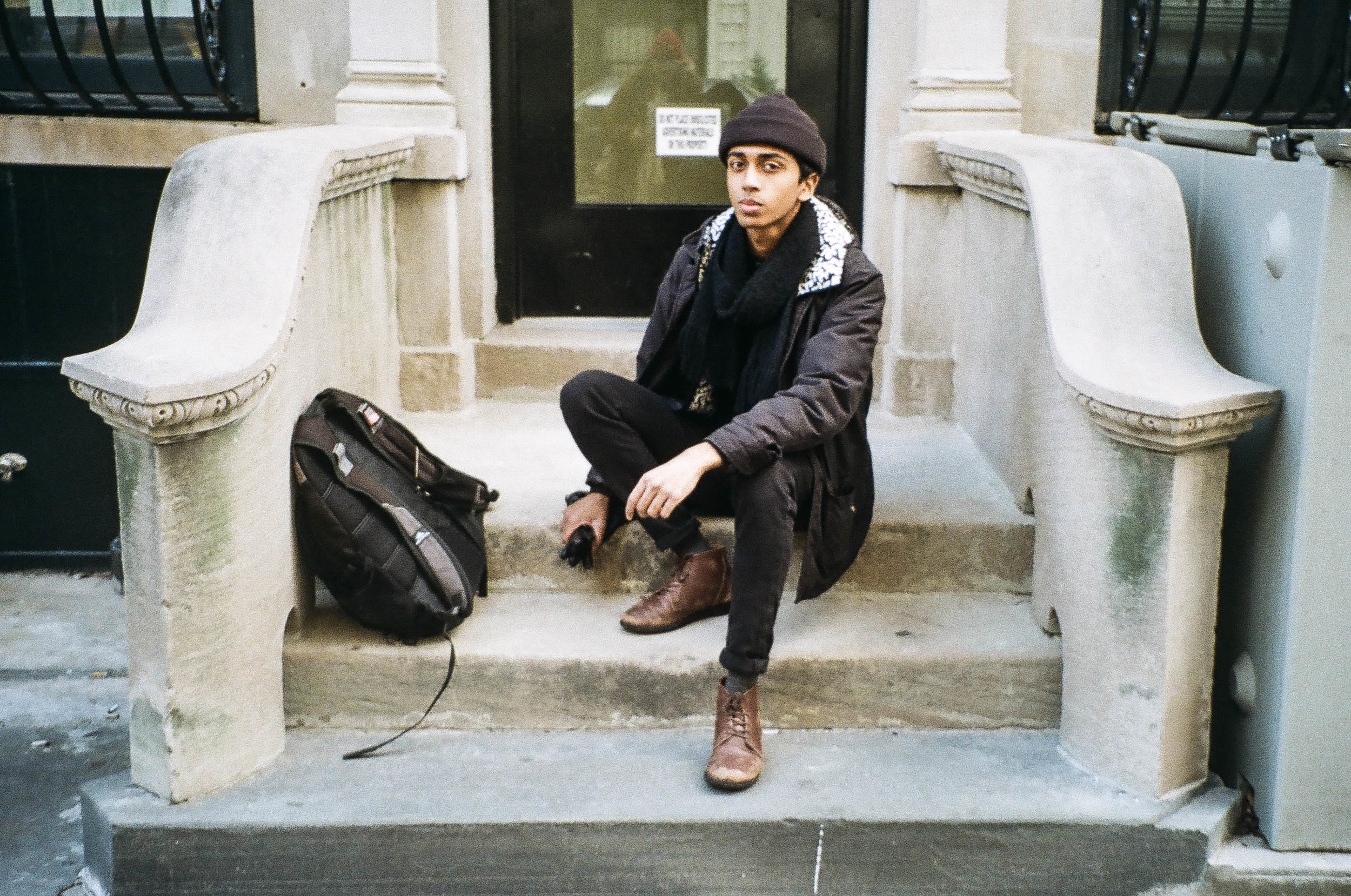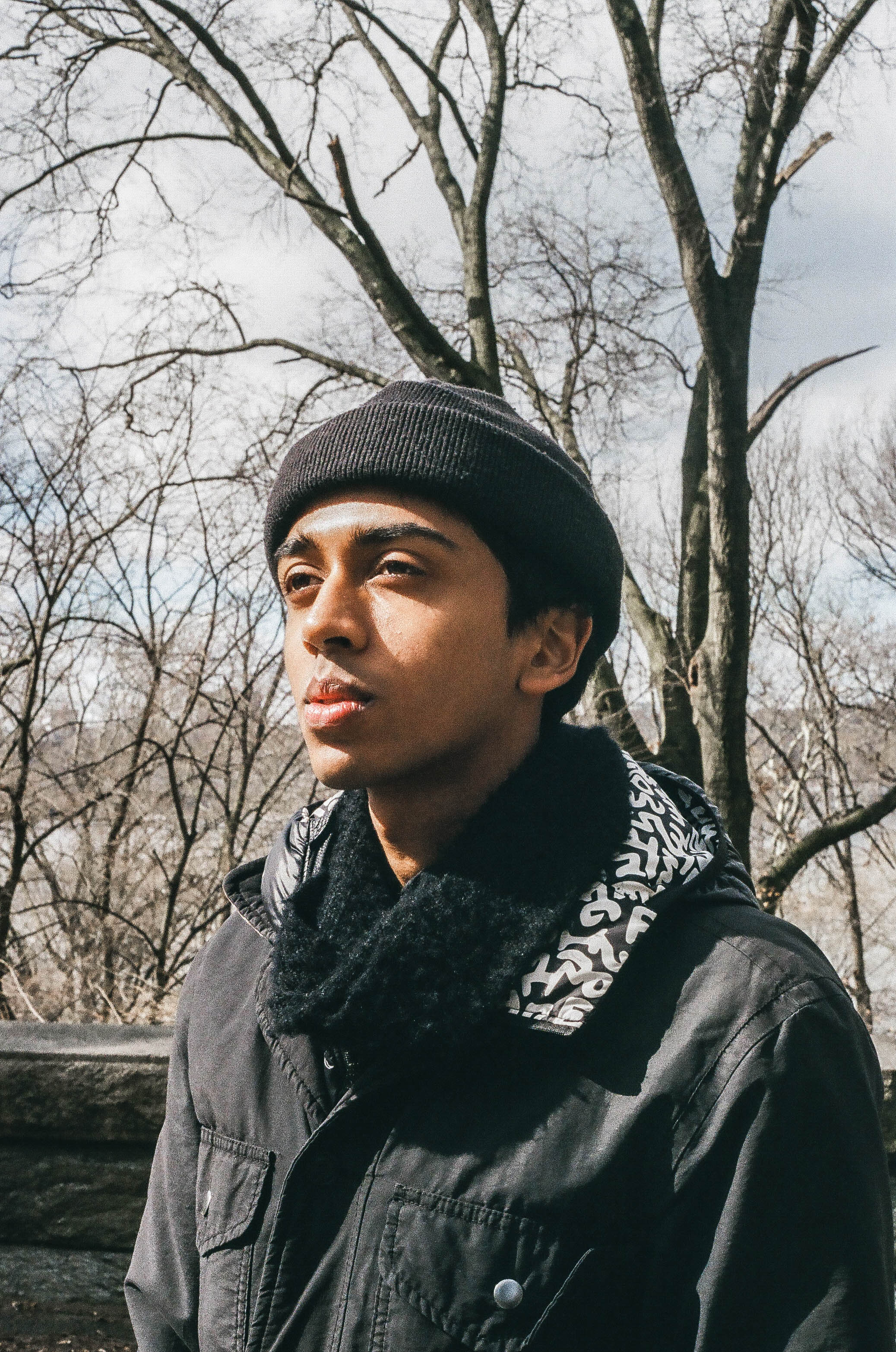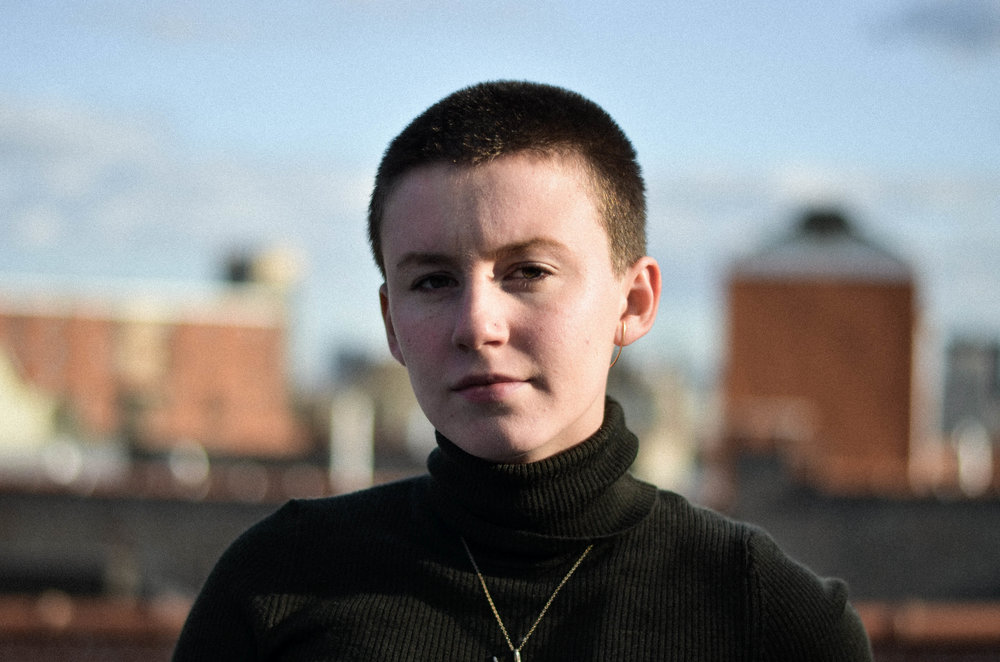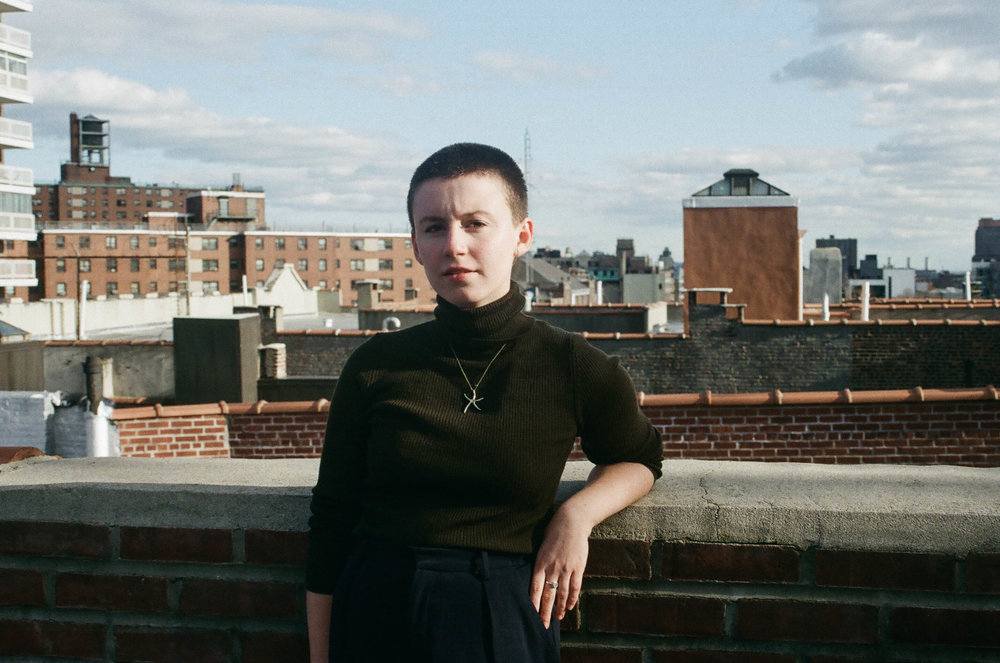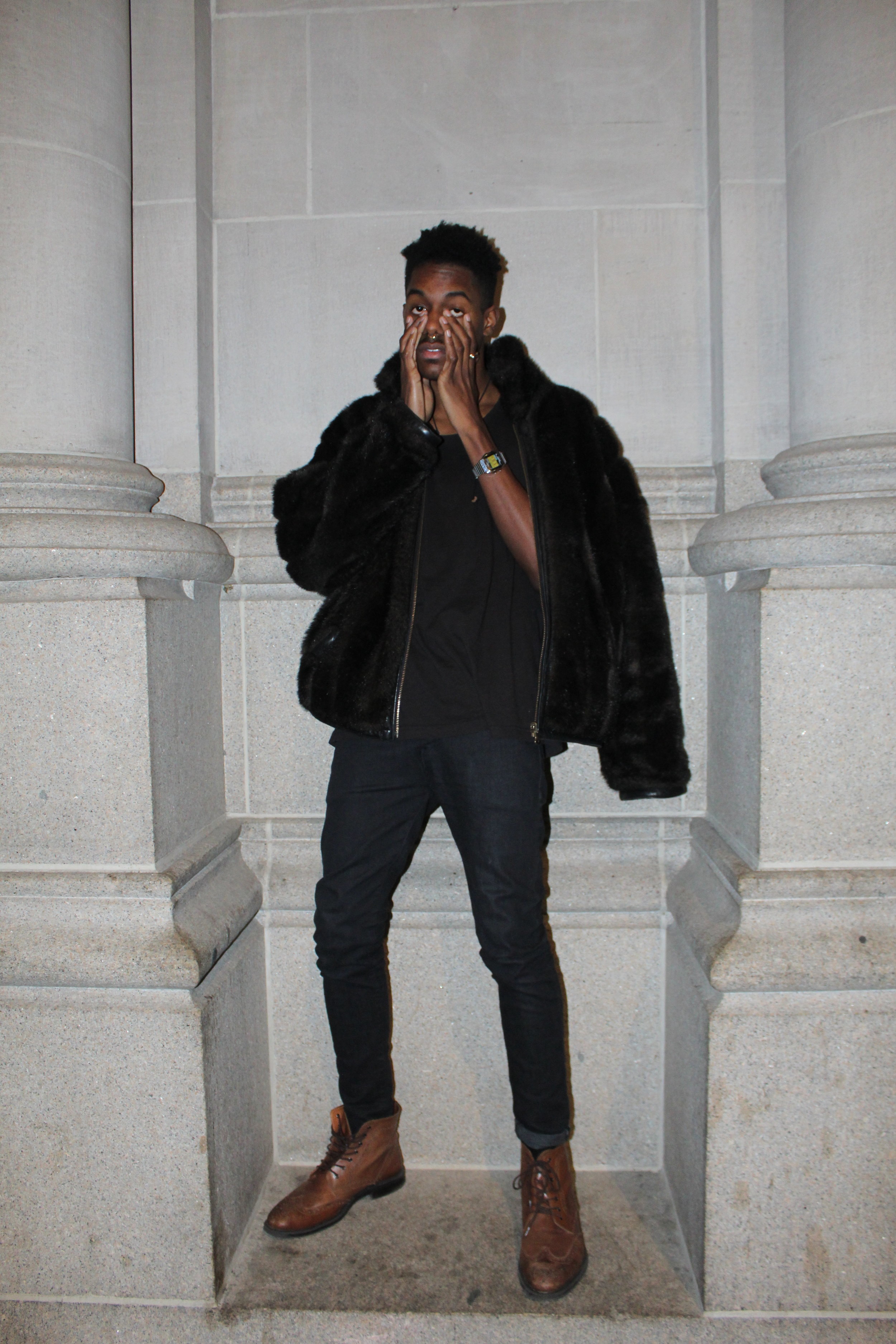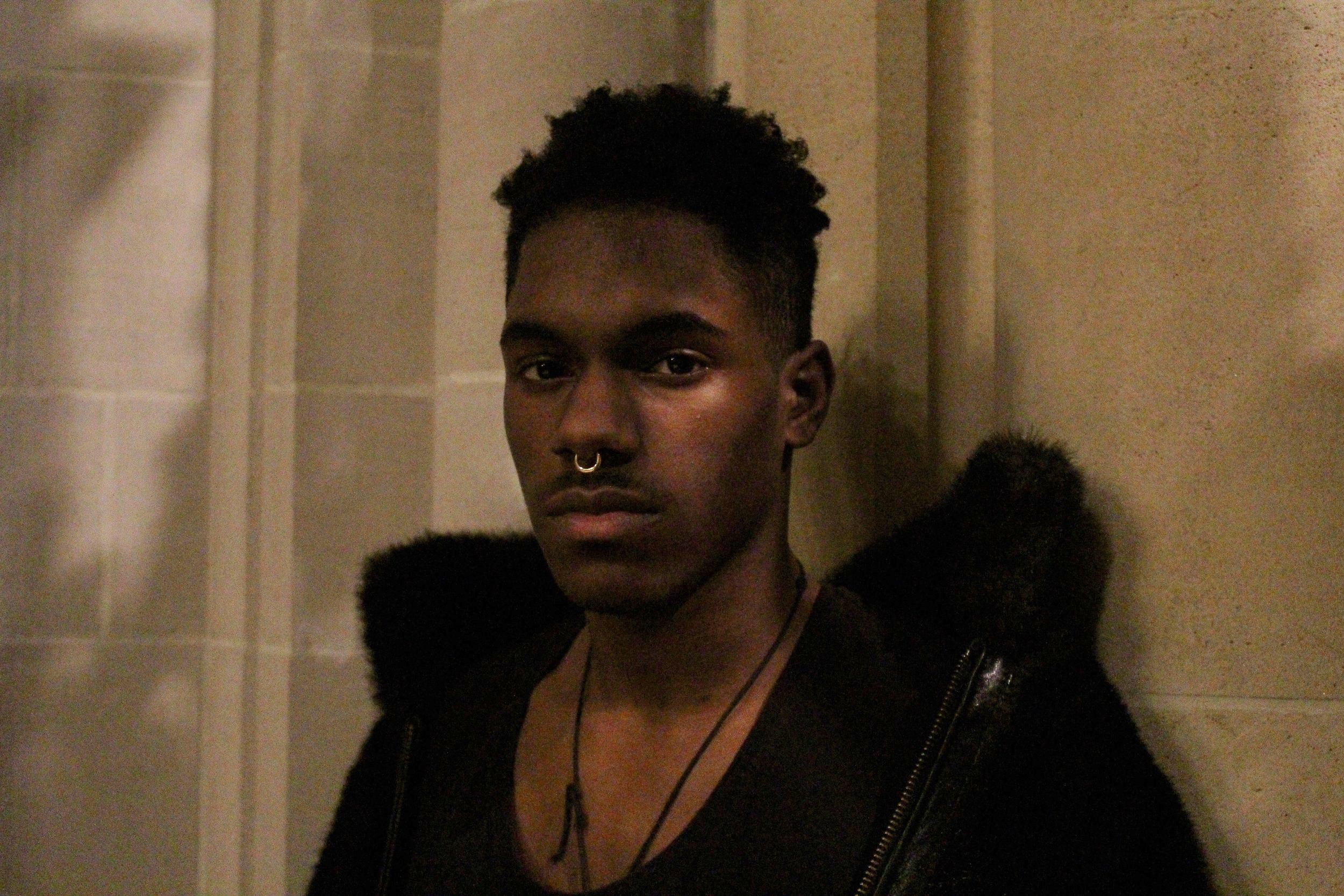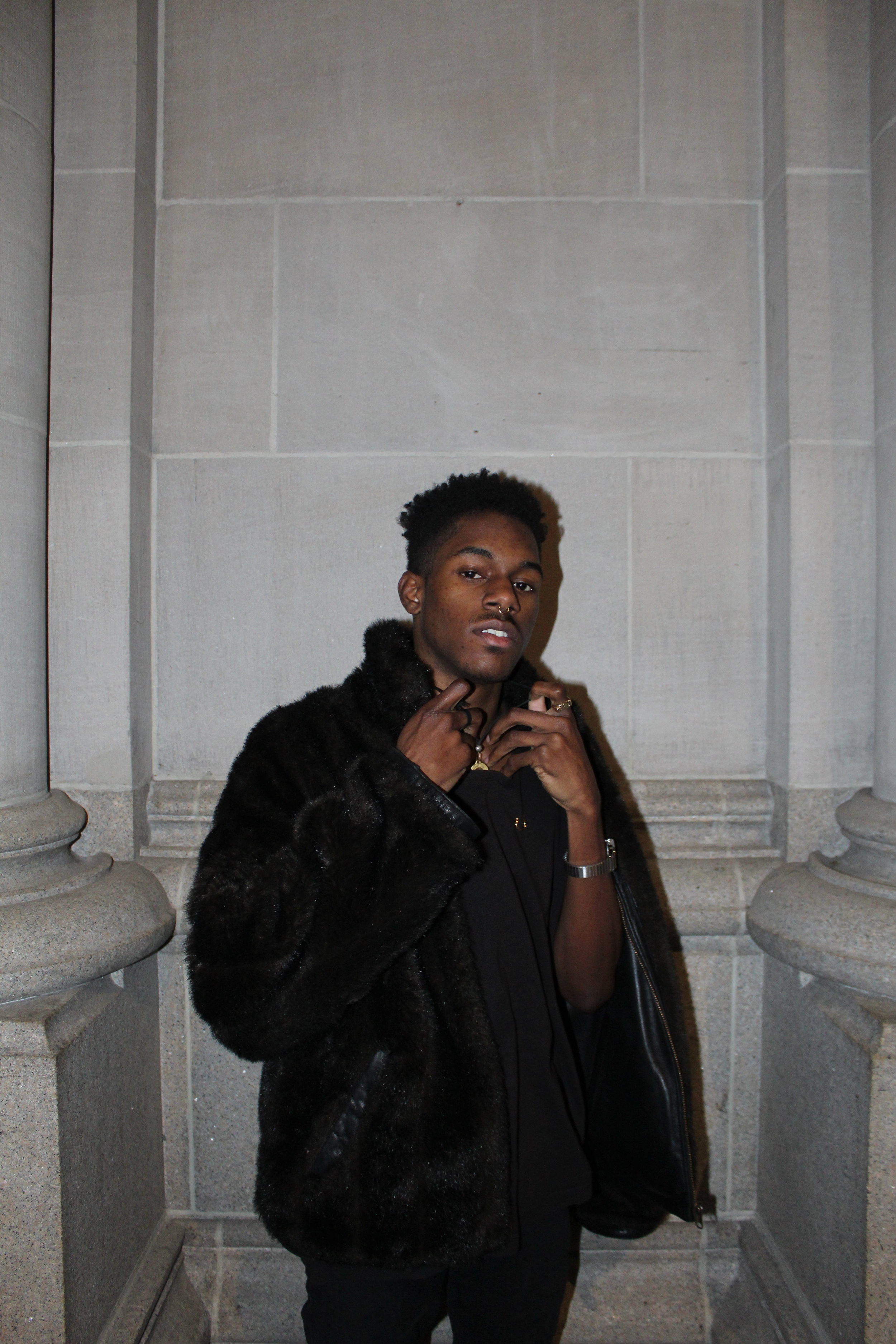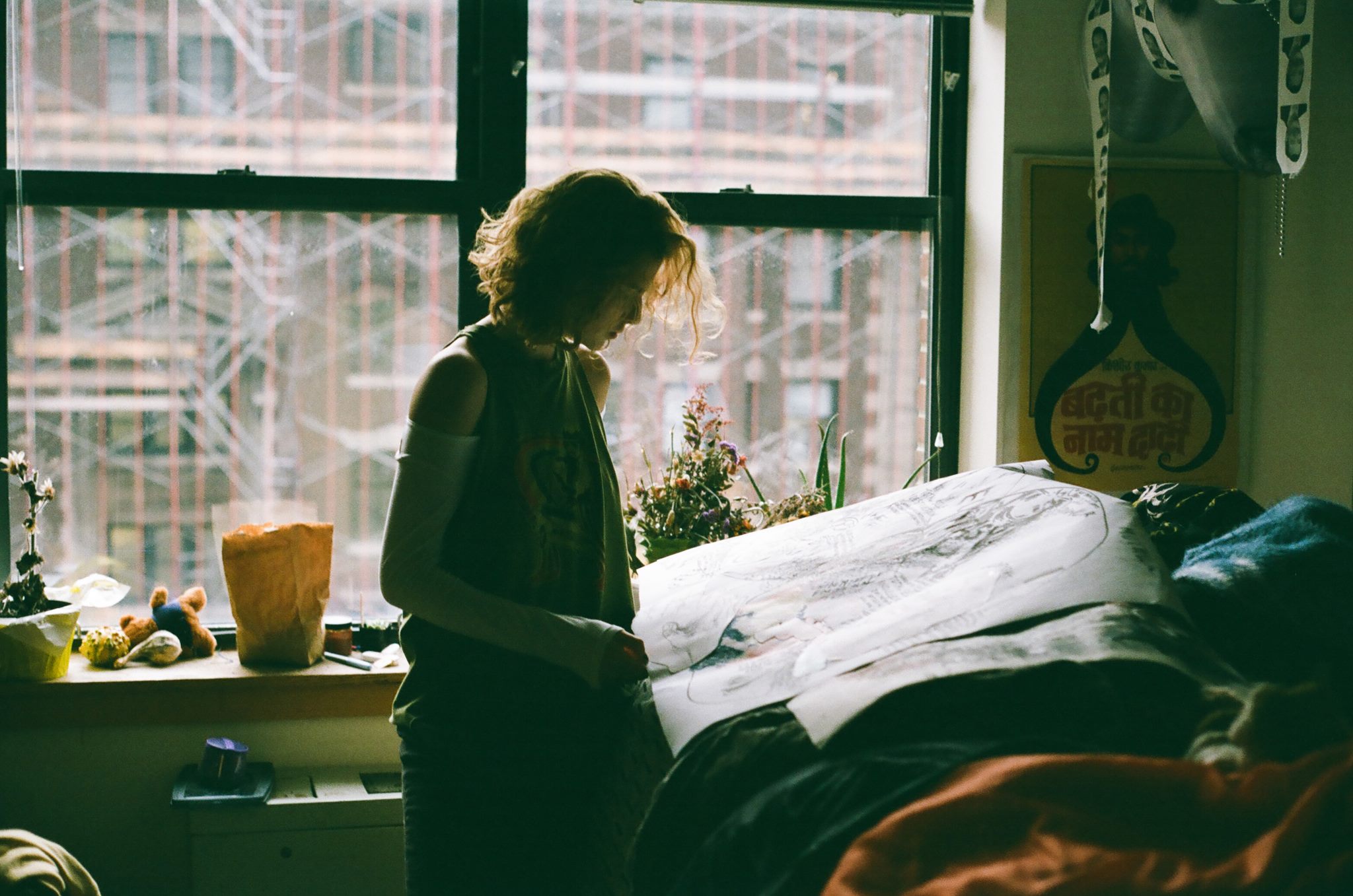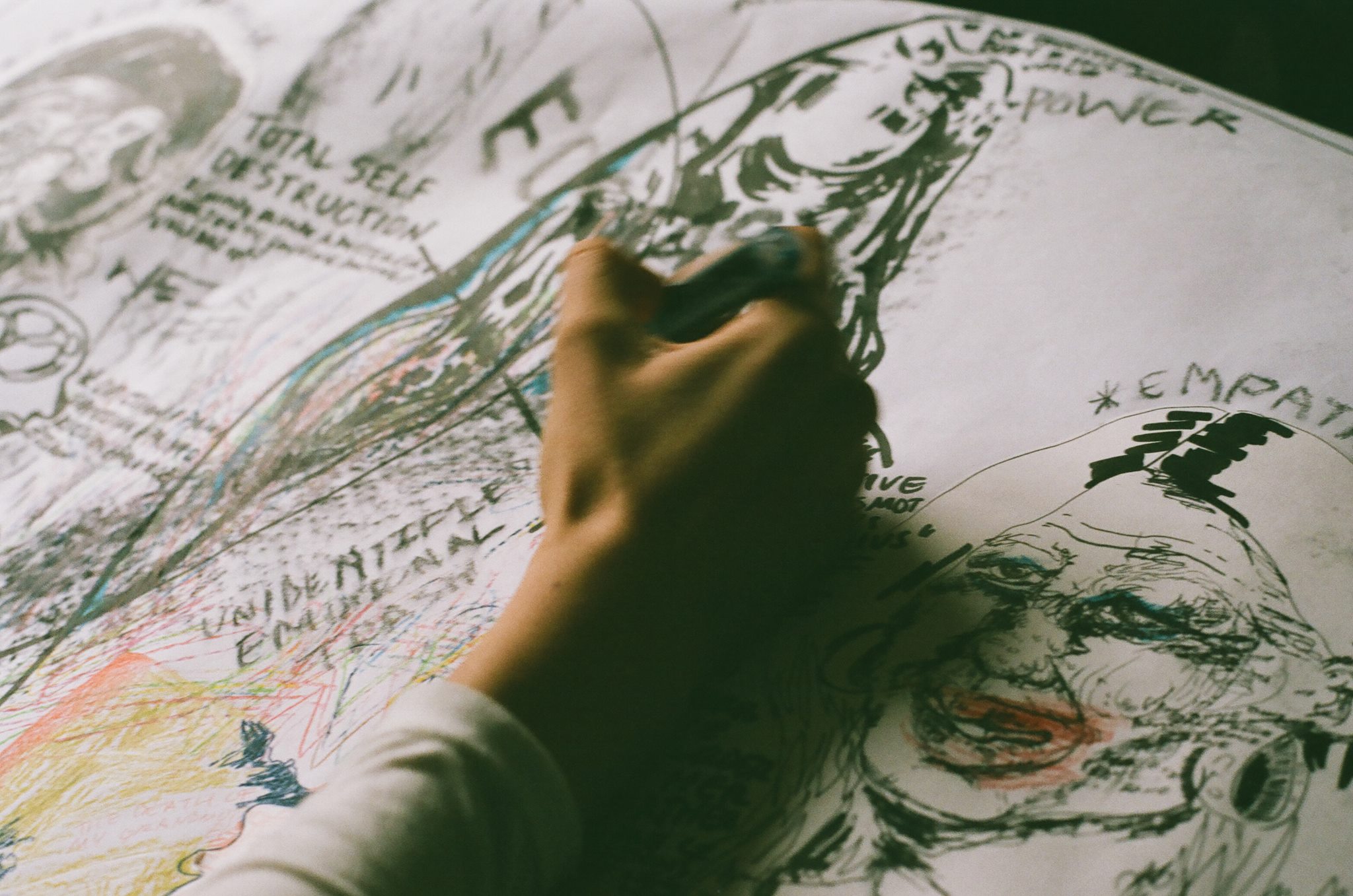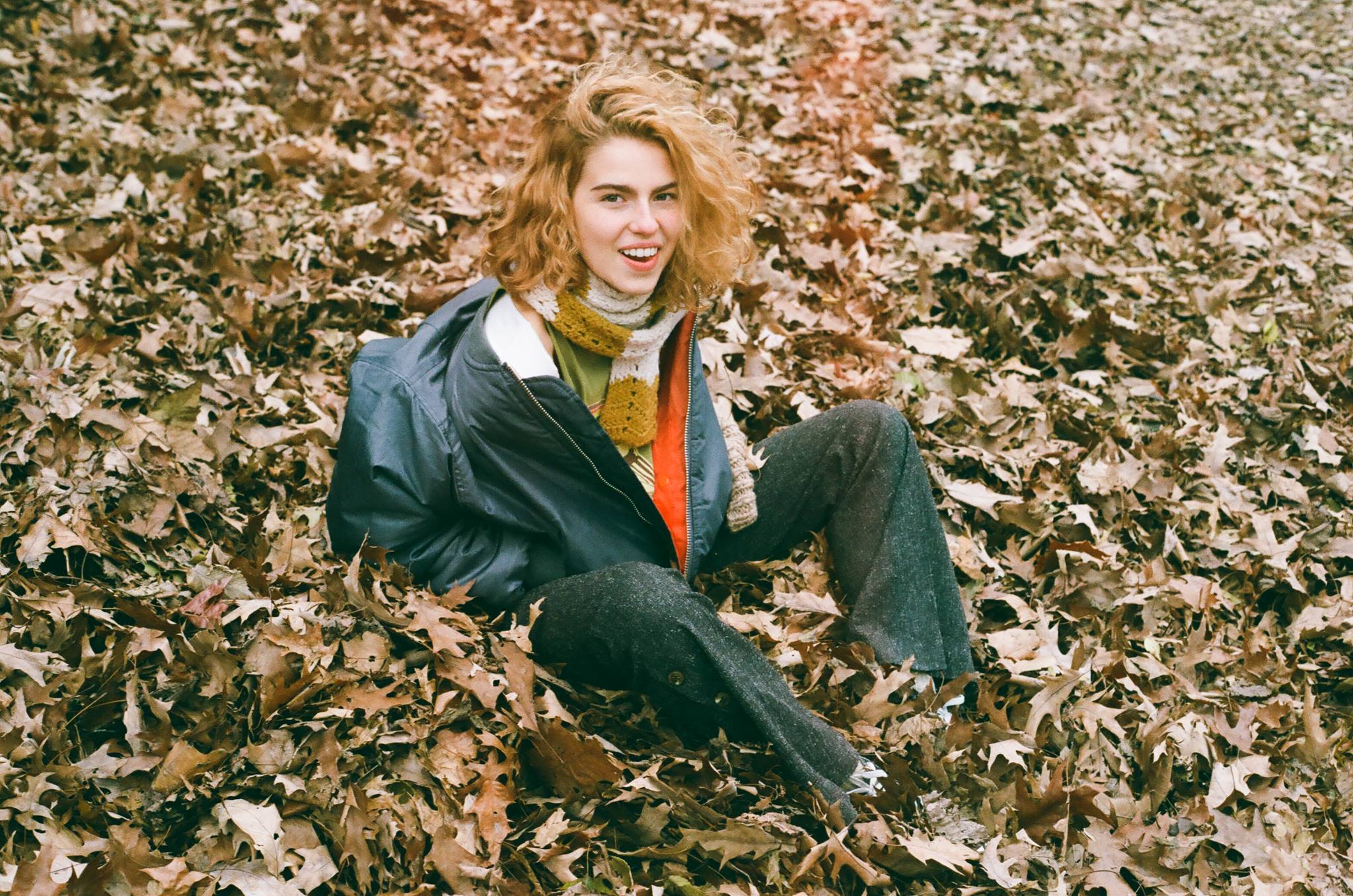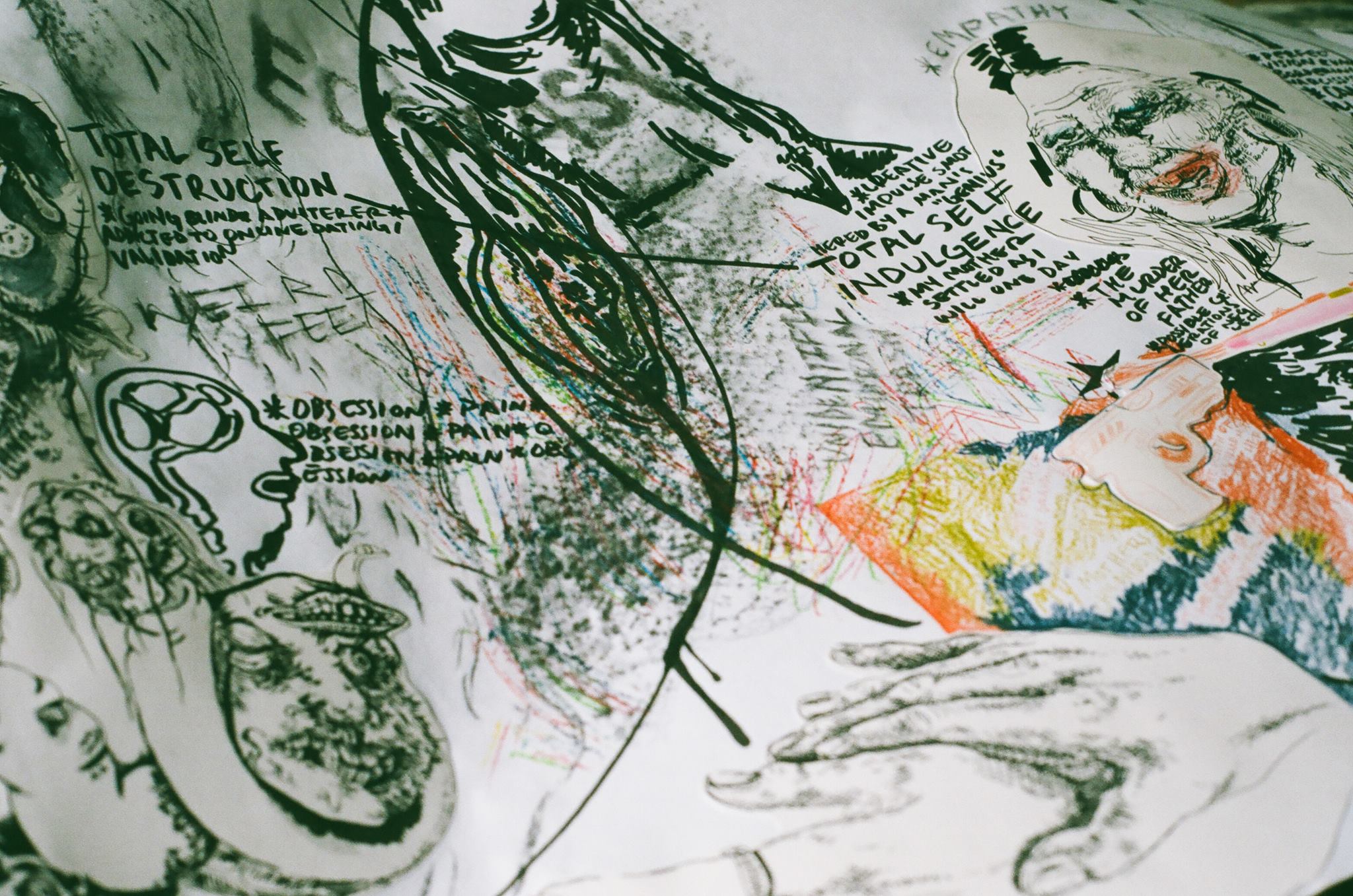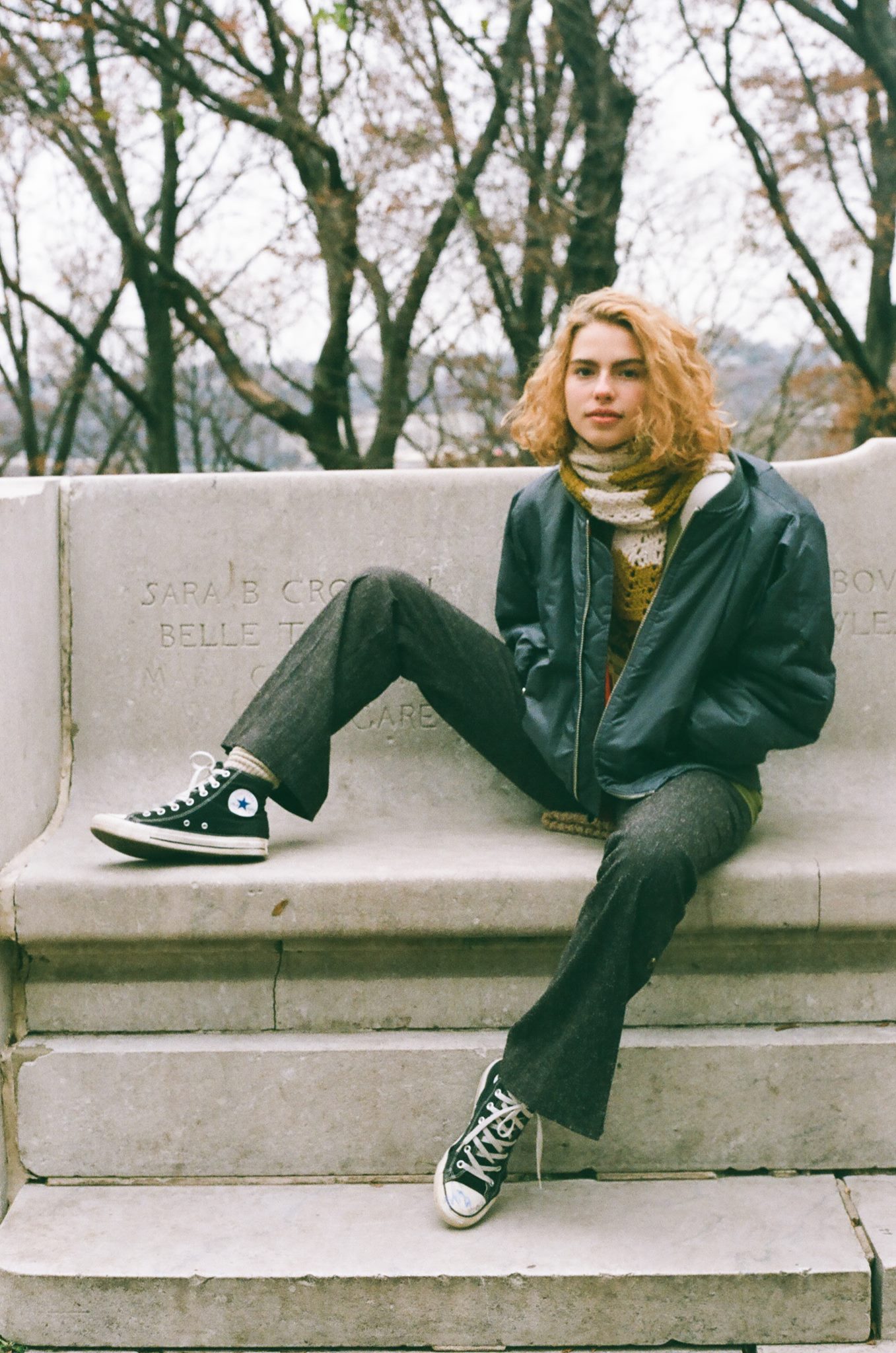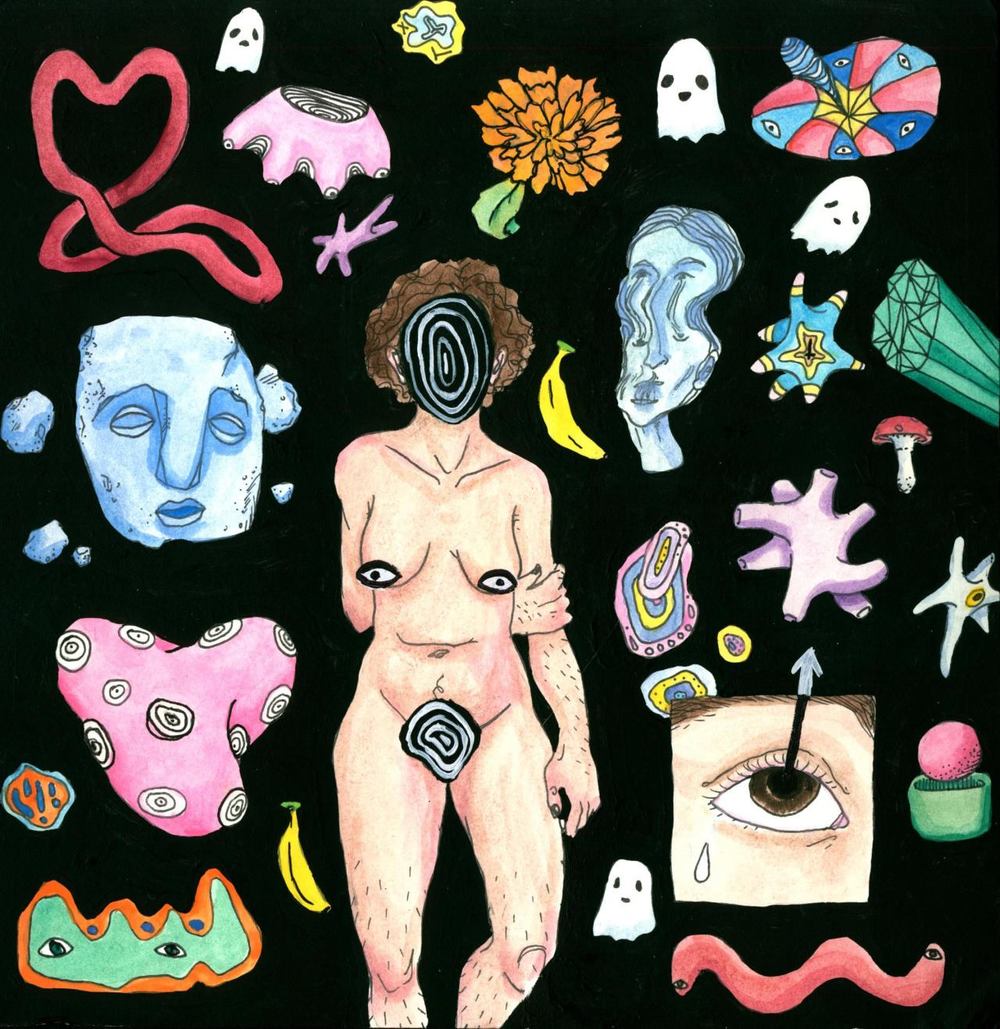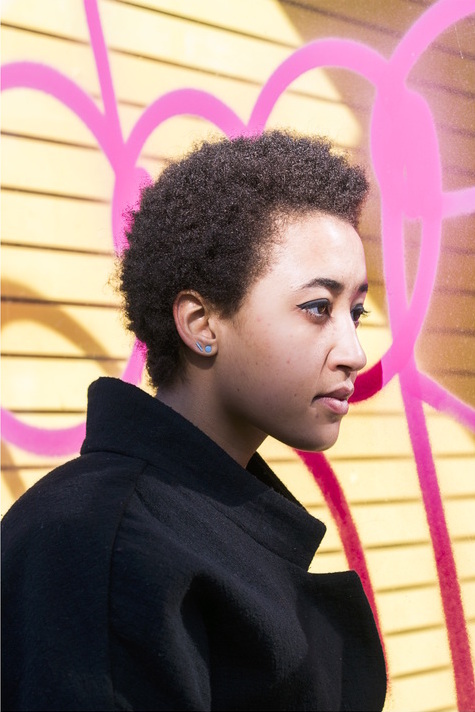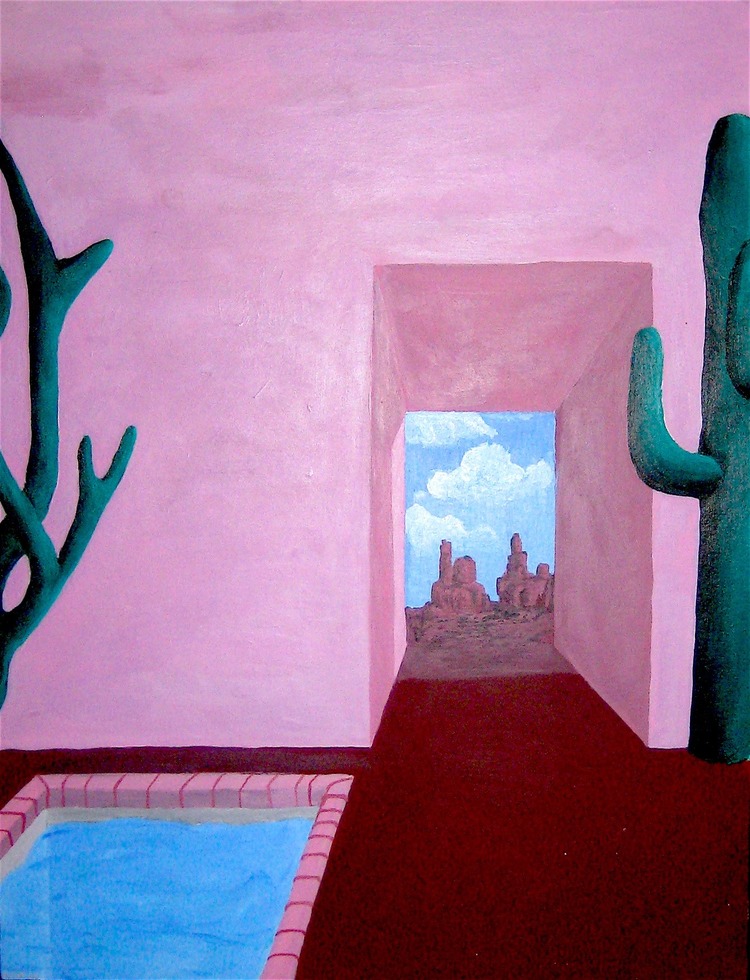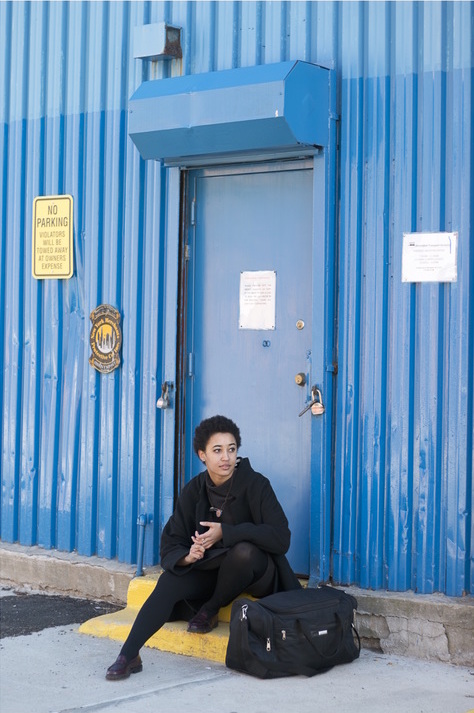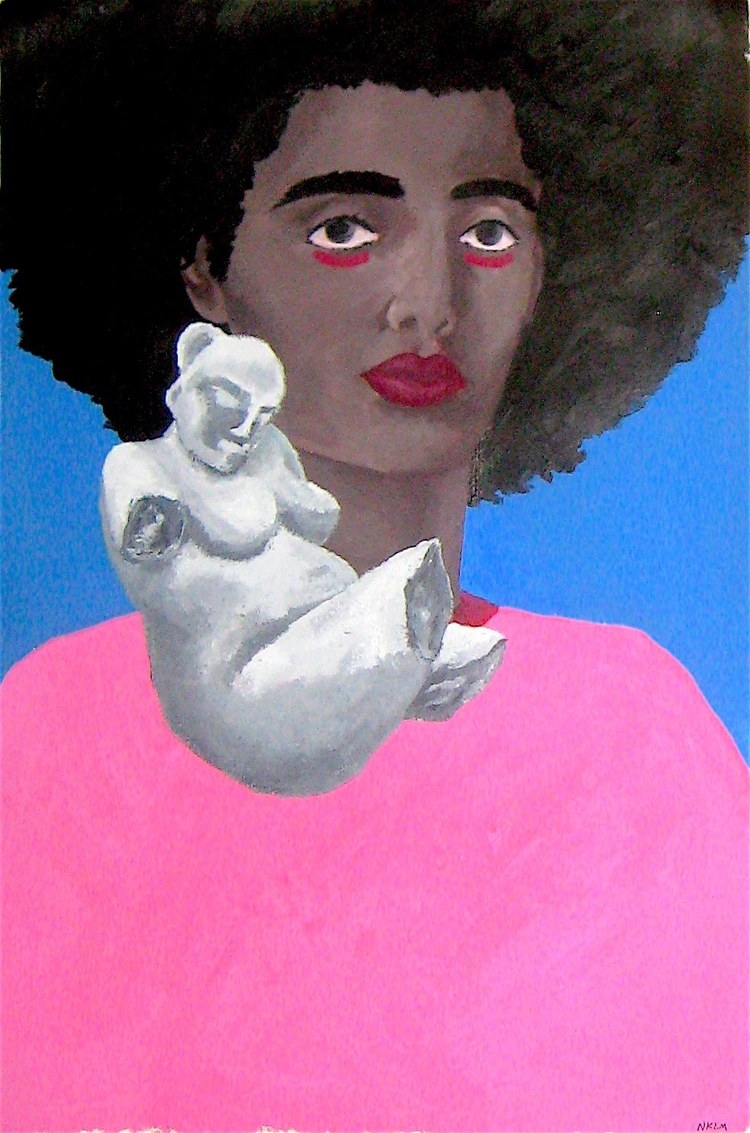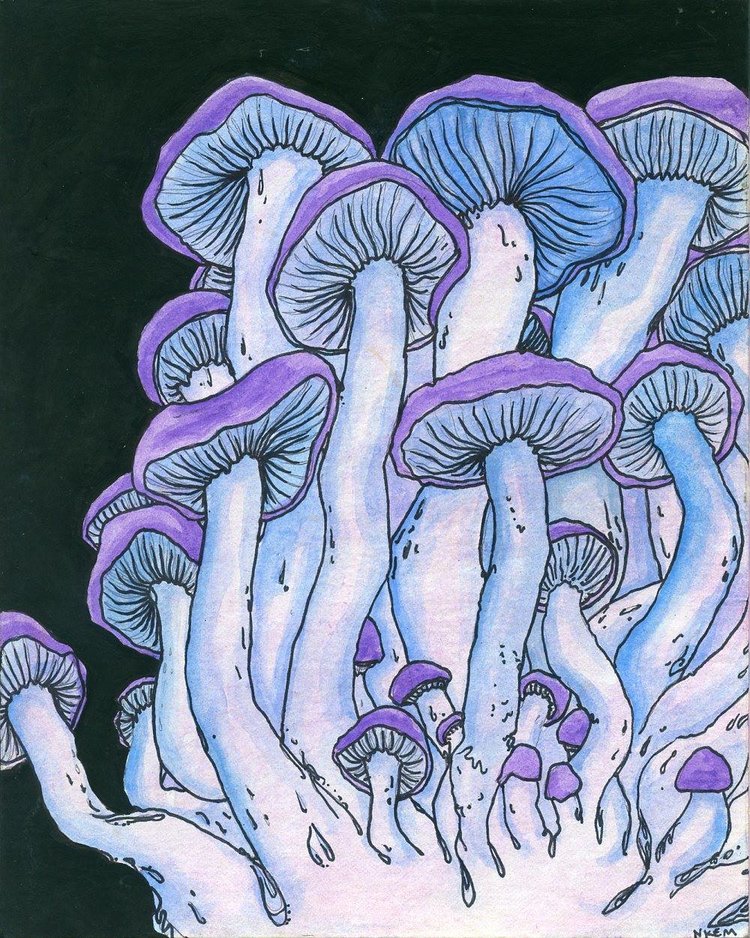

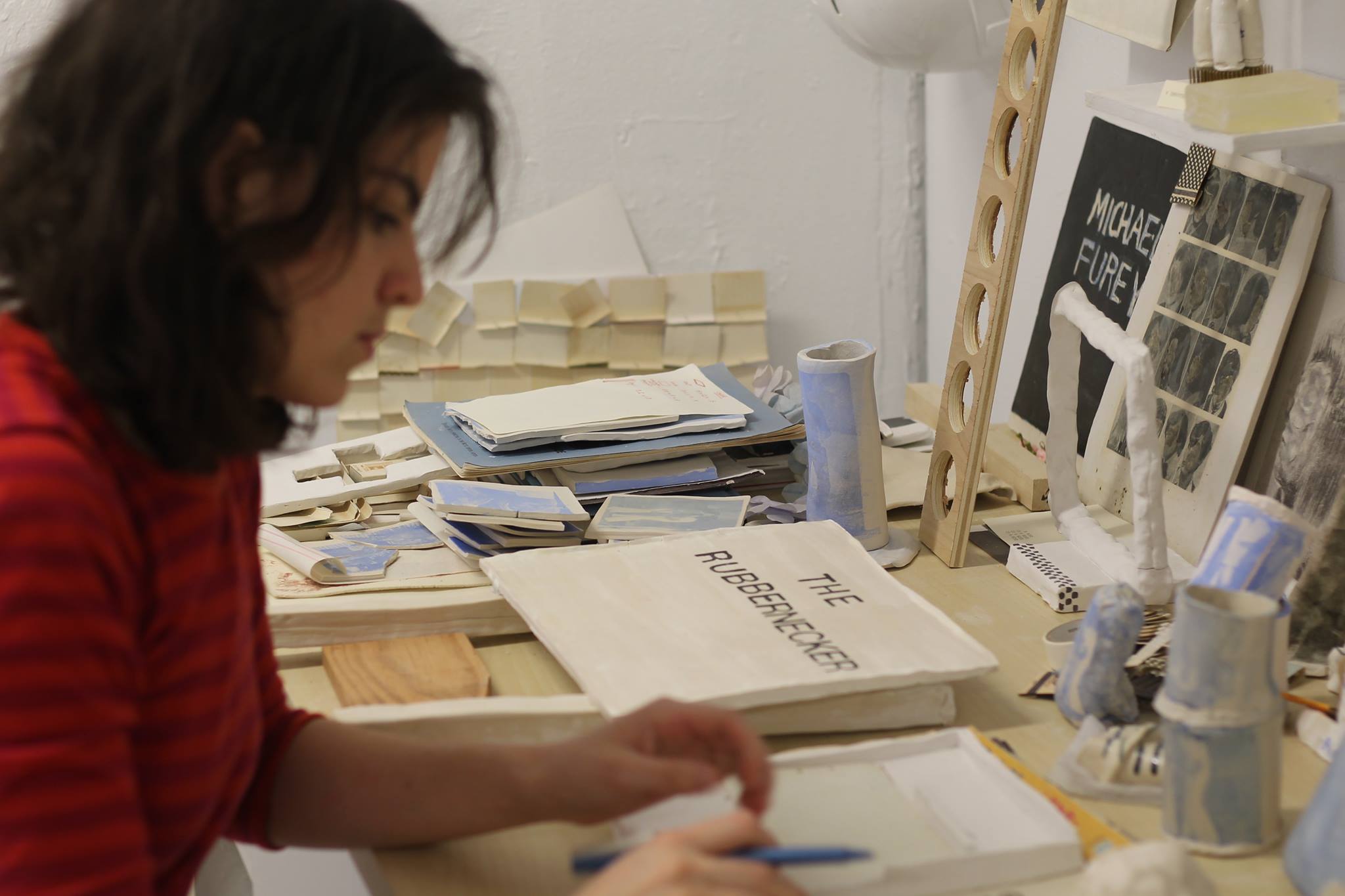


Photography by Shelby Hettler
Interview by Jewel Britton
Eliza Callahan is a born and raised New Yorker who produces art in the form of creative writing, music, and visual arts. She is a second semester senior in Columbia College double majoring in creative writing and visual arts, and is just one class away from having a concentration in art history.
Do you think growing up in New York influenced you as an artist, or made you an artist?
I don’t think it made me an artist but I was perpetually around art- always going to plays, readings, seeing shows. My parents are not artists but a lot of their friends were, so I grew up with a lot of artistic characters in my life. I’m an only child so my parents would always take me out with them — their friends became my friends from an early age, and I consider some of their close friends to be like family.
Were these people what initially drew you to the arts or were you already interested in it?
I never actually considered doing visual arts seriously until sophomore year in college. I went to a high school that was very arts-centric and I always took a lot of arts classes, but primarily I focused on music and writing. I write music and perform so that was the medium that overtook my life- and is still a very big part of my life. Music and writing were my “things” growing up. Visual arts was something I always did but it wasn’t something I had a practice in.
At Columbia, I ended up finding myself to be really happy and provoked in my visual arts classes, and found that the professors were consistently incredible and fascinating people: Jon Kessler, Rirkrit Tiravanija, JJ Peet, the list goes on… The visual arts classes began to have a really big influence on my academic work and vice versa. I had never considered going to art school and am really grateful to have been able to experience an academic and arts education. I initially came to Columbia thinking I was going to be a classics major- which I did study for a while and am still really interested in. Art classes really gave me a place to work through what I was learning and figure out how to navigate my thoughts. Looking back, I was definitely most excited in classes when I would feel, oh I want to engage with this or respond to this in my own work (that would happen in a core class, an art history class, a Latin class, etc.)../ So while the visual arts classes gave me the methods and tools, the academic classes were, as they damn should, feeding my ideas.
How do aspects of your other mediums- writing and music- come into your visual art?
Music hadn’t really come into my art until recently when I started scoring some video art that I made. Until that the practices had remained very separate. But I’ve incorporated my writing in a lot of my works. Usually the writing I use is not “found writing”, it’s always stuff that I've written in bits and pieces. I’m actually working on a piece, that I don’t think I’ll finish by the end of the year, which is really revolved around different ways of viewing and experiencing text. I'm currently in the process of creating a pier from which viewers (or rather readers) will be able to experience the text projected down onto the water. So basically, creative writing and visual arts definitely seem to come together, but not so much with music- yet.
Do you write the lyrics for your band?
Yeah, I do write a lot of the lyrics. It’s interesting because I spend a lot of time on my writing but for lyrics it’s different. People are always like “oh so you write poetry and then set music to it” but actually for me it’s not like that. Sometimes, I wish it was and I guess it is occasionally. But when I’m writing a song, the melody or chord progression is what is often in my head first and the lyrics follow. It’s not that text gets the back burner, but it’s definitely a different kind of process for me- less calculated and more emotionally driven.
Do you have a similar artistic process for visual arts, where the text comes after?
Usually that depends. Sometimes I’ll write something and I’ll decide that it’s something I want to incorporate in a work, or I will overlay text onto something after it’s created. So there’s not really a fixed process for that.
Is there a medium you prefer to work with?
I took a ceramics class sophomore year with the artist J.J. Peet.. I think he is on leave but he’s a phenomenal artist and I think he affected my approach to art making in general. Ceramics has been a good way for me to filter my ideas. It's hands on and more immediate in many ways than other forms of sculpture, but it is of course limiting in size (at least with my current facilities) - you have to make things that fit in the kiln. I've been doing some work assembling ceramics into larger pieces with epoxy lately which has felt pretty freeing. I've also spent a lot of time experimenting with different approaches to image transfer processes onto clay- silkscreen and iron oxide. That’s what I had been focusing on, but it’s been about a year and a half of that. While I’m not ready to abandon ceramics in any way, I’m ready to start making larger works with different media. Of course it’s possible to make large ceramics, but it’s so many layers of process and relying on other people to fire the kilns etc. A lot of logistics!
Some of your pieces featured on Ratrock had representations of the female body. Are there any feminist messages you are trying to convey to the viewer?
Feminism definitely plays a role in my work. I’m always thinking about giving agency to the female body and female image. I consider myself to be a feminist, an intersectional feminist. [Looking at pieces in her studio]— so yes, it’s definitely a part of my practice intrinsically whether it’s explicit or an undercurrent.
Do you think your political beliefs seep into your work in the same way?
I actually had this crazy thing happen: so last semester, in a pre-Trump America, I was thinking quite directly about presentation of fact versus fiction in history and trying to create my own system of prevention of false fact. As someone who is also a writer, I was drawn to the idea of creating false narratives, effectually short stories and histories and presenting them as fact, or artifact through my ceramic object. Thinking about the way in which different histories come together and pile up, notions of how we store things and archive art histories. I’ve been thinking of myself as kind of a preemptive archeologist- someone who is making something look as though it was part of history, and considering the way something in the present or recent past might be dug up in the future, discovered this way. Thinking about chronologies and nostalgia for the present.
I’m thinking of myself as someone that’s kind of conning the viewer in my presentation of “False object”— The politicians kissing on the weird mug-like structures pulls images from a United Colors of Benetton ad campaign. It’s a clothing label that made a large ad campaign that came under fire for photoshopping images of world leaders kissing (without their permission) that everyone forgot about pretty quickly. I wanted to take these images that were already photoshopped, not photoshopped by me, and were presented in a way that could have been truth or fiction if you did not know better, and petrify them- literally turn them to stone so that in a future they would be “discovered” as fact. Then we entered the era of POST TRUTH and along comes Kellyanne and her “alternative facts”! Precisely touching on what I was dealing with and giving it a nice little title to boot. I could never have guessed that post truth would become cliched over the course of this school semester. I guess I'm now inadvertently making pop art.
Are you involved with the arts on campus?
I was involved as freshmen with Postcrypt, but my music has made it hard to be really involved with anything. But I’m a heavy supporter of Postcrypt, Ratrock, CU records, and Snock even though I’m not directly involved, I love and value the much needed physical, creative and emotional spaces they have created for this campus.
If you could only consume one kind of medium (visual arts, music, writing…) for the rest of your life, what would it be?
That is very difficult! I guess I might have to say music because then I would still get words through lyrics, and music so I’m able to get two out of the three I would want. Sorry art!
Anything you want to plug- for your music or your art?
So, I’m currently a part of two different bands. Jack & Eliza (which I’m half of) and Purr, which I started with Jack, bassist Sam Glick from Columbia, and drummer Max Freedberg. We’re actually opening for Foxygen this Friday, March 24th at Terminal 5.
Here is the link to tickets!
